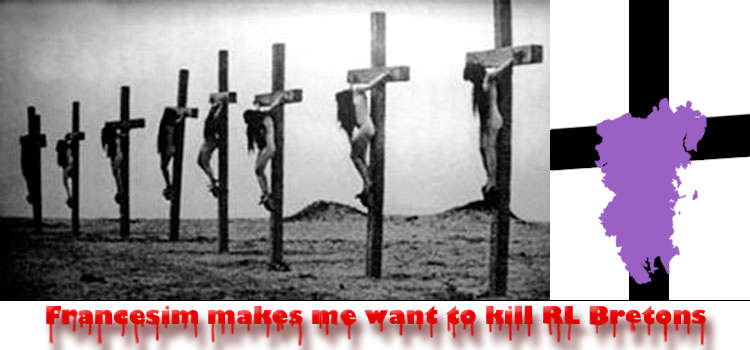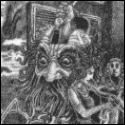|
Stalingrad posted:
OOC: This is an absurd anachronism, and I will in-game murder you with Polonium-210 now. Deal with It.
|
| # ? Dec 14, 2012 18:48 |
|
Fall Sick and Die posted:OOC: Turn Preview ooc: What the fuck is wrong with you? Seriously.
|
| # ? Dec 14, 2012 22:23 |
|
Fall Sick and Die posted:OOC: Turn Preview Just to avoid any issues, please don't post anything like this again. Cozy Hemp Mines posted:OOC: This is an absurd anachronism, and I will in-game murder you with Polonium-210 now. Deal with It. If you have a problem with the way an action is done, contact the mods. It's really neither helpful or fun to threaten a player in the thread over a perceived anachronism.
|
| # ? Dec 14, 2012 23:57 |
|
OOC: Here's the map of Europe, with all the armies I know of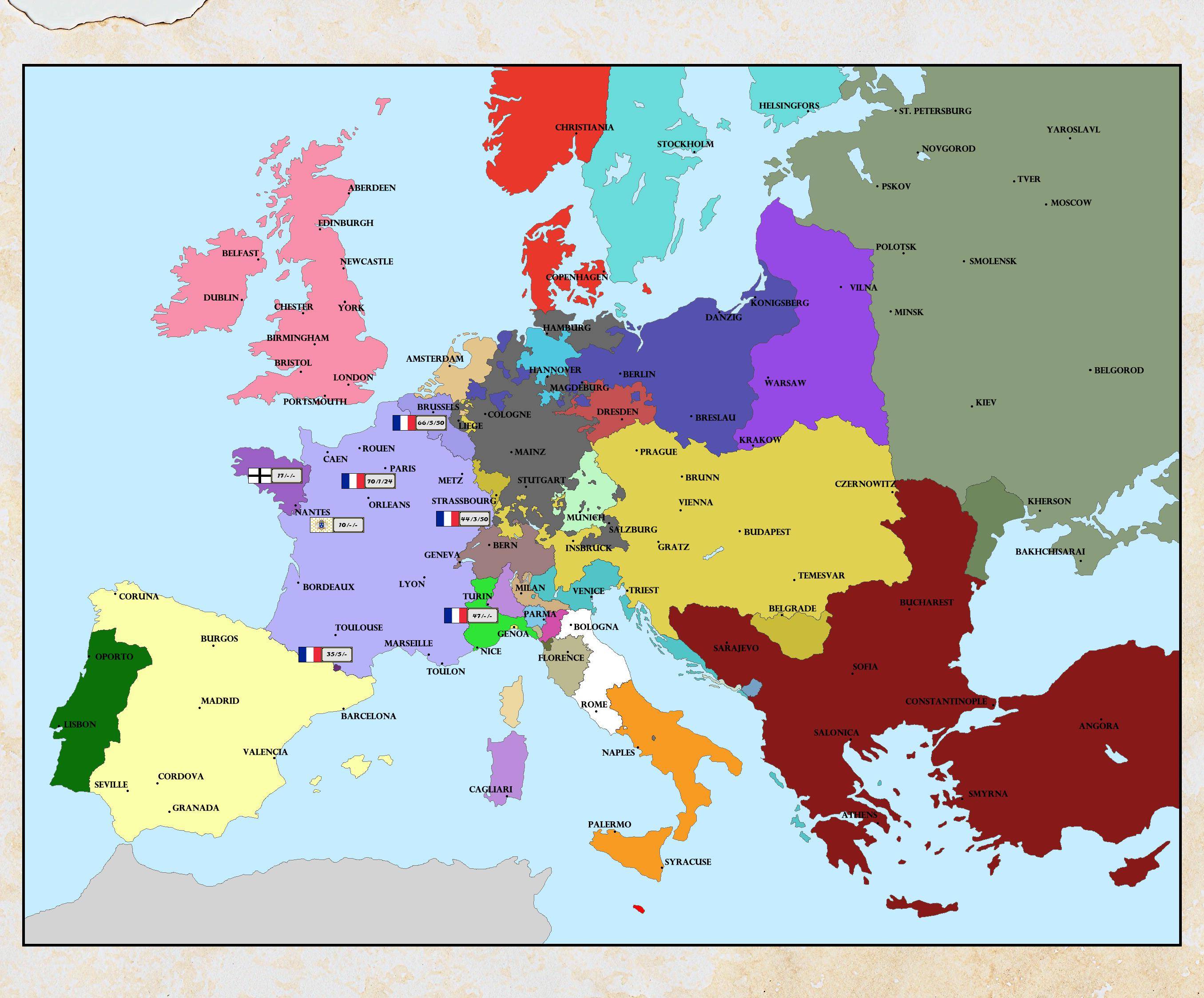
|
| # ? Dec 15, 2012 17:03 |
|
OOC: Official turn preview is here:
|
| # ? Dec 18, 2012 01:15 |
|
Autumn 1793 - Turn 9 LEGISLATIVE NEWS: 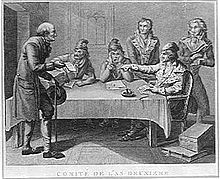 - Robespierre’s budget passes. The increase in manufacturing subsidies allows France to further industrialize, rectifying decades of aristocratic obstruction. However, this comes at the cost of the clergy. Many of the state-run churches are forced to closed, returning the Roman Catholic Church’s dominance in many areas. - With overwhelming Jacobin support the Emergency Decree passes. The position of the Presidency is dissolved, pending Constitutional Convention, and a Committee of Five rises to take its place. These individuals are chosen by the Legislative Assembly and serve as the Directorial Head of State. - The following five individuals are chosen as France’s directorial head: Saint-Just, Robespierre, De Sade, Danton and Marat. There is an attempt to elevate Gerbey, but efforts from a number of officials including De Sade put pressure on the government to prevent his appointment. The Legislative Assembly is reduced to a rubber stamp, more or less. - The Legislative Assembly also approves of a Constitutional Convention. Legal scholars begin the lengthy process of reviewing and rewriting the Jacobin Constitution of 1793. It will be some time before they emerge with results. - The Legislature’s Treason Committee announces it has finished its investigation and plans on issuing orders for arrest the upcoming winter. The people of France anxiously await to hear who will be tried and inevitably executed. - The following agenda is submitted by the Acquisition Committee. NEWS FROM THE WAR FRONT: Eastern Campaign Battle of Moselle - The Army of the Rhine under General Bernadotte marches east into occupied Alsace-Lorraine. They are at first not attacked. Instead of the French standard, the army has hoisted an eagle standard. The Austrian army, estimated over 50,000 rides down from the hills as the Army of the Rhine enters Moselle. - The Army is immediately thrust into crisis when an Austrian soldier, against all odds, manages to shoot Bernadotte in the leg. He is forced off the battlefield from the injury and ushered into a tent. This drains French morale and soon the lines are beginning to shatter under the weight of the Austrian assault. - Fortunately, Bernadotte is saved by the arrival of 30,000 soldiers from l’Arme du Centre. It seems Gerbey expected such misfortune to befall Bernadotte. The sudden slew of re-enforcements allows France to reorganize and assert a stronger defensive position against the Austrians. The battle rages on for three days mainly due to the reappearance of Bernadotte. Although bandaged, his presence raises morale. - Ultimately, however, the combined French forces are unable to defeat the Holy Roman Empire. There are too many and so, an organized retreat is ordered. Under Bernadotte’s command, France retreats northward. 24,182 French infantrymen were lost and 983 cavalry. Although the total dead could have been far greater, this represents a nominal loss for France. Austrian casualties are unknown. They do not follow the retreating French army and instead strengthened their hold over Alsace-Lorraine. - Unsatisfied with his failures at Moselle, Bernadotte schemes for a solution to the Austrian wall that now blocks his path into the German heartland. Using assistants who know the area and hours pouring over maps, he is able to chart a course through the less defended department of Meurthe-et-Moselle. Thanks to luck and general incompetence on the side of the Austrians, the Army travels through with little incident. - Before October, Bernadotte is able to seize control of the largely undefended state of Luxemburg. When news of this arrives in Vienna, troops across the Empire are suddenly put into action. The Emperor hopes to nip whatever plans the French have in the bud. - Bernadotte is forced to stop outside of the city of Trier. A siege begins, but with winter setting on it is likely to be short. Italian Campaign: 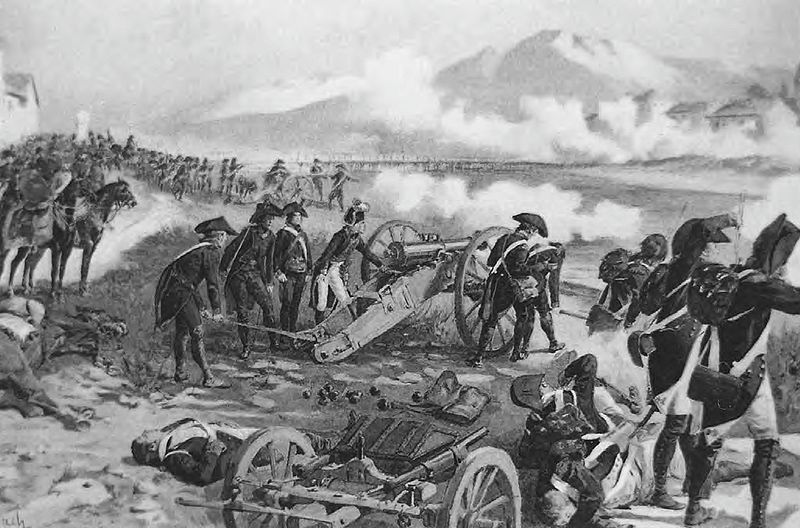 - General Ney stops his advance into Italy to strengthen the newly established Republic of Savoy. He encourages citizens to join the Savoy Republican Army, with hopes of holding off any attempts by the monarchy to reclaim the state. As expected, recruitment is low. Very few Italians feel like being commanded by a pompous Frenchman. - This is further complicated by General Ney looting conquered Italian estates and redistributing the land to his soldiers. These foreigners are seen as latter day Mongols, ransacking the countryside and stealing everything of value. - Ney’s forces suddenly depart from Turin, tearing down their camps and turning toward the nearby small town of San Luca. Not only does the city rest upon a large hill, but the slopes leading up to it are wet and marshy. France occupies a formidable defensive position. Battle of Turin 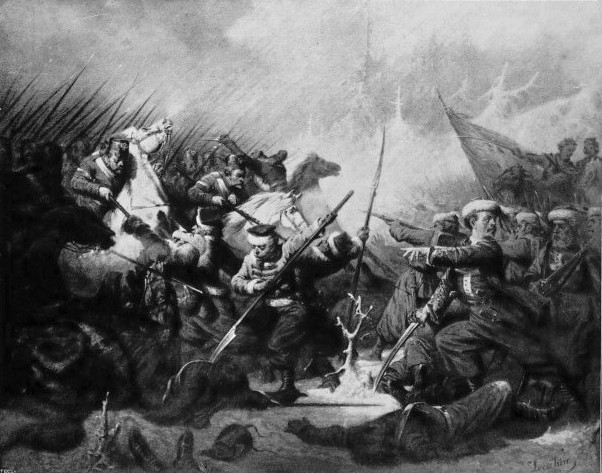 - A force of 48,000 infantrymen, 12,000 cavalry, and 12 Artillery led by Lombard Michelangelo Alessandro Colli-Marchi is seen just outside the city of Cheir. Although thin and wide-eyed, Colli-Marchi is known for his immense courage on the battlefield. On several occasions his inferiors have been forced to drag him off the field on a stretcher. He will not break easily. - The Italians make three attacks, two feints and one other in earnest with hopes of tempting the French from their place atop the hill. A small command under Prince Benedetto de Savoy is sent to overrun the French left flank, which is believed to be less defended. Meanwhile, Colli-Marchi will attempt to keep the main army’s attention. The left flank, under Major Amédée Emmanuel Francois Laharpe, is put off balance by this maneuver and put into a retreat. - Upon hearing of the incursion, General Ney repositions his troops with hopes of reinforcing the line before it shatters against the Italian onslaught. He arrives just as the Prince orders a charge into the French forces. Cannons tear through the soldiers. The Italians rush their serried ranks and bayonets rushed on the enemy in a compact mass. Major Laharpe is relieved of his duties and Ney takes control of the left flank to prevent a complete rout. He is largely successful. - By the following morning, Italian forces are exhausted. The only progress made by Coalition forces has been largely reversed by Ney’s leadership. Morale is further undermined by the capture of Prince Benedetto by French forces. The Italians approach General Colli-Marchi about the possibility of surrender, which is angrily refused. The battle continues. - By the following evening, even the French are beginning to get exhausted. Colli-Marchi is merciless with his attacks, one wave after another. The sounds of cannon fire can be heard almost nonstop in the distance. Even as it begins to rain, the Italians do not relent. It is only when General Ney organizes a charge into their camps that the lines break and Italy retreats. Colli-Marchi is one of the last to leave the field, viciously cursing his men as they scamper east. - French victory is attributed almost exclusively to General Ney’s boldness and planning. 7077 French infantrymen were lost in the fighting, compared to about 25,560 Italians. A decision is made not to follow the retreating Coalition forces because of the approach of winter and urges for caution from Paris. News begins to arrive of a great tragedy there... Dutch Campaign: 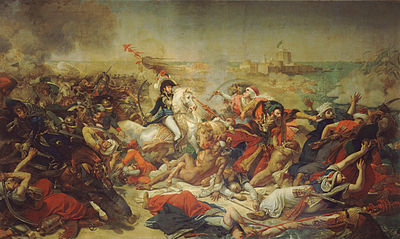 - General Andrea Massena grants General Daendals control of all resources necessary in securing territory beyond the Dutch border while he himself remains behind to defend the French Netherlands. The transition in authority goes over smoothly, helped partly by General Massena’s distribution of about two credits among his army. Daendals and his forces depart at dawn, with a slight increase in morale. - As soon as General Daendals is out of sight, Massena repositions his army near the eastern border to be prepared for Austrian incursion. They are helped by Jan-Baptist Verlooy and his followers, who believes France will allow a neutral, independent Belgian Republic after the end of the war. About 3,000 Belgians join arms with their French brethren. - A large coalition of Holy Roman Empire forces are spotted approaching the French position. Of infantrymen there are an estimated 10,000 Austrians, 8,000 from Hannover, 7,000 Bavarians, 5,000 Saxons, 3,000 Hessians and 1,000 Anhalt soldiers. They are assisted by cavalrymen: 5,000 from Austria, 4,000 from Saxony and 1,000 from Hannover. - These are not all who arrive though. In the dead of night, British troops land and join their allies in the Dutch Republic, bolstering the Coalition’s number and skill. Prince Frederick, Duke of York, arrives to provide logistical assistance. He is ordered to cooperate with the forces of the Holy Roman Empire and to avoid creating divisions within the rank. This is largely successful. The Coaltion forces swell by about 10,000 British infantrymen. - Just as the sun begins to appear over the horizon, British ships begin a naval bombardment of the French controlled coast. A majority of the French forces are unaffected, being significantly inland. However, the attack introduces a sense of urgency and the French army is forced into a premature march toward the Coalition. Battle of Liege 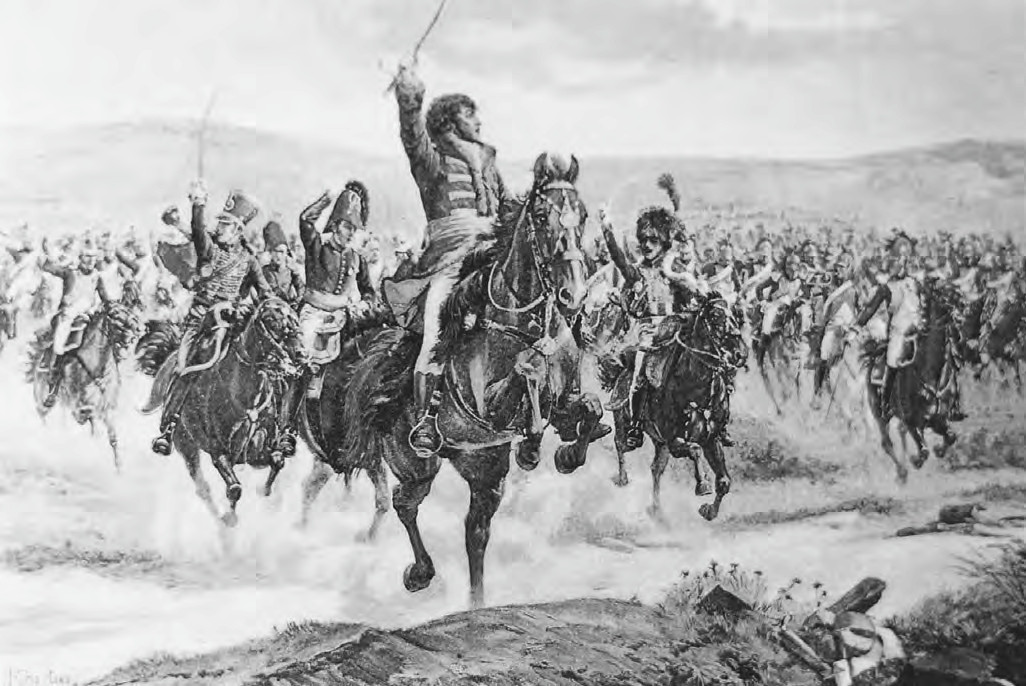 - The two armies meet about ten miles outside of the city of Liege, in the village of Fléron. It becomes apparent the Coalition has underestimated the size of the French army and is nearly ten thousand men smaller in size. Still, numerical superiority is no substitute for tactical and leadership advantages. - Prince Frederick leads a column of 30,000 soldiers through the high road around the French forces. The thick morning fog provides a suitable cover for the British general and his men. They circle and then approach from the back. Général André Masséna is suddenly fighting a battle on two fronts. - Masséna grants temporary command to Lieutenant Colonel Jean-Baptiste Jourdan of a 20,000 man force to relieve the back French line from Coalition assault. Jean-Baptiste is a relative newcomer to the battlefield and the decision to leave such an important mission to Jean-Baptiste is a risky maneuver. - Using tactics that seem inspired by the Bretons Jean-Baptiste reorganizes his force into six commands, effectively flattening his leadership. With rough orders to stop the Austrians at whatever cost, he then lets them loose. These forces exploit the local terrain to their advantage. Instead of fighting the Coalition head on, they hide in the woods and brush and do small ambushes, slowly bleeding the force. The tactic comes at heavy cost, however. - By nightfall the nerves of the Prince’s forces are frayed. They are paranoid of all the creatures laying in the brush, and word of poor progress on the main front. Uncertain of the outcome, Prince Frederick chooses not to press onward. He cannot trust the morale of his men. - The main brunt of the Coalition force is like the waves upon a rocky shore. Although fierce, they cannot seem to break Masséna’s formations. Slowly, the attacks begin to peeter out, giving France the opportunity to counterattack. French forces have neglected to note that the fields have slowly been turning to mud from the fighting. Numerous horses become entrapped in mud. It is brutal. - Despite this debacle, Masséna is able to reorient his forces. Seeing their major casualties, the Coalition authorizes a retreat into Belgium where they will rest. France has obtained victory, albeit at severe cost. l’Armee du Nord has lost 7621 infantrymen, 750 cavalrymen and five cannons. Morale has dropped significantly, with many men in shock from the sheer extent of death. - The Austrians seem to have faced even worse however. Although no numbers are known, estimages on total losses range between 30,500 and 15,000 men in total. This is a major loss for the Coalition. The world is now convinced that the French Republic needs to be smothered in the cradle. The bulk of the Holy Roman Empire is now mobilized. The Prussian Army will arrive by the winter. Royalist Invasion of Aquintaine: 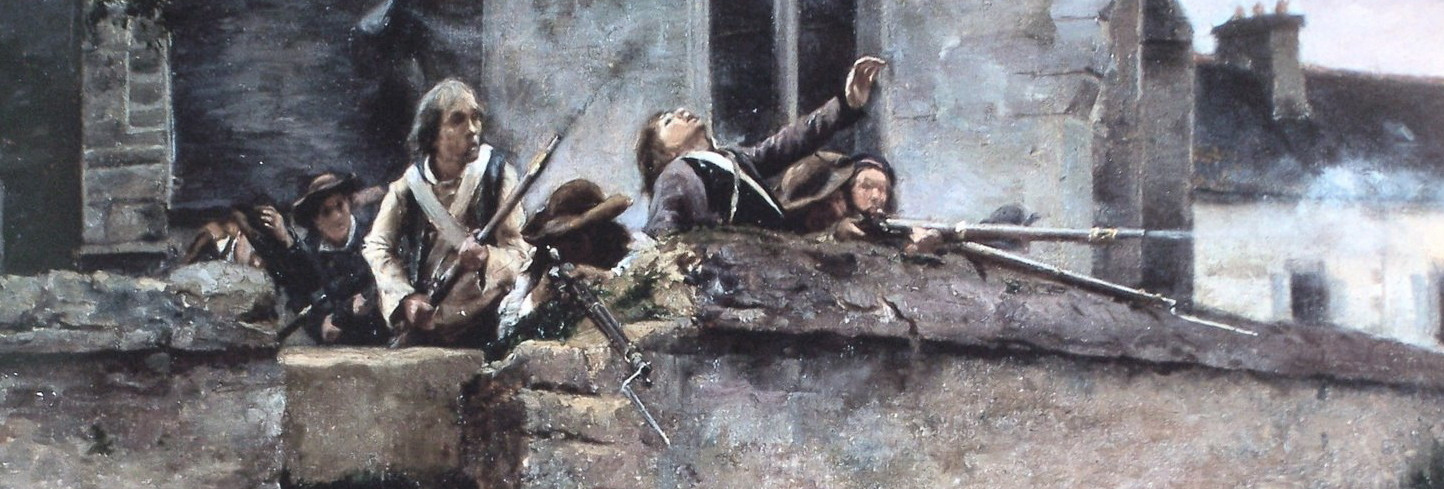 With all of France focused on the eastern front, King Louis XVIII is able to lead his small army along the French coast without much issue. Tours does not even put up a fight; its gates are found open when the King arrives. It is afterall the home of Rochambeau, famed counterrevolutionary. They would not take up arms against their rightful King, especially when he has an army of 10,000 outside and is threatening to execute all ‘traitors’. The city has nothing, save for a gate, to even hold off the invaders with. King Louis marches his host into the conquered city. - Louis XVIII spends a fortnight celebrating the city’s capture, taking residence in the Place Jean Jaurès. The French tricolour is removed from its place and replaced with the flag of the Bourbon monarchy. The Jacobin party headquarters for the department is burned by some rowdy monarchists soldiers. The Jacobin mayor and his council are hung outside the main gates. Royalist morale improves slightly. - The King departs shortly before dawn, ordering trumpets to play on his way out of the city. 300 infantrymen and 200 mercenaries are left behind to defend the city should government elements seek to reclaim the territory. - The story is much different at Bordaeux. The King arrives to find the gates shut and walls manned with a handful of soldiers. He orders the city open its gates and bow to its rightful king. The men rebuff the proposal, forcing King Louis XVIII in a siege over the city. Bordaeux needs outside help or it will surely fall before the end of winter. - Meanwhile, 5,000 infantrymen and 2,500 cavalrymen from Spain enter into battle with l’Armée du Centre. Under the orders of General de Gerbey, France has been instructed to secure the border and expel any threats. As part of this, a significant contingent of French forces have come to Basses Pyrénées to set up a defensive position. Spain withdraws to Bayonne where it can utilize the mountains and the Gave d'Oloron to defend itself. Battle of Bayonne 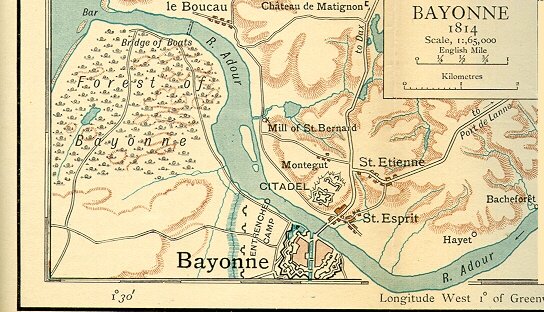 - Given sheer numerical superiority, nearly two to one, the battle is shortlived. In an attempt to delay the French advance, Spanish forces begin destroying the bridges linking the town to the rest of the country. Although this cannot hold off France forever, they hope they can at least delay until reinforcements arrive. Shots are fired across the Gave d’Oloron, but no casualties are sustained by either side. - In the dead of night, General Gerbey’s forces confiscate a large number of fishing boats from locals in the area. The locals are outraged by this, seeing it as an attempt to take away their livelihood, but can do nothing but swear at the heavily armed soldiers. - The French army sails downstream and disembarks in the commune of Oloron-Sainte-Marie. They then turn around and begin to approach Bayonne from the east. Word spreads of the French advance, giving the Spanish some time to prepare. Despite this, they are completely overwhelmed. Spain is forced to abandon the city of Bayonne and retreat back into Spain proper. - Only 2,110 Spanish infantrymen make it back into Spain based upon the number of bodies. They also lost 549 cavalrymen. Their horses remain strewn across the field. France has suffered very few casualties, approximately 1457 infantrymen. The battle has been an overwhelming success. The nation’s territorial integrity has been ensured. DOMESTIC NEWS: - Bernadotte delivers a rousing speech to his men, announcing that this is the beginning of a new era. France is no longer the serf of a monarch and France is free to carve out its own future, preferably in the flesh of the German people. The Army of the Rhine loudly cheers in response. - The Army of the Rhine begins to march toward Luxemburg but its progress is unfortunately limited by several mysterious accidents along the way. It has barely moved at all by the end of the three months. Horses escape, men disappear from their beds and cannons are missing wheels. There is sabotage afoot! 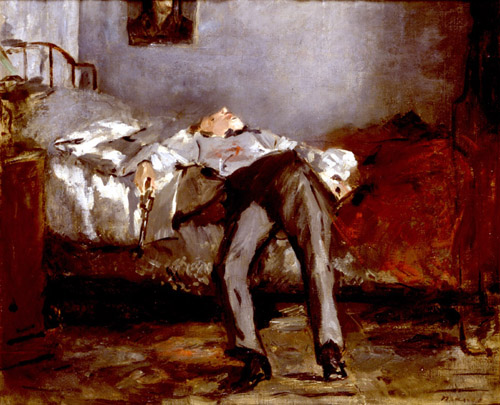 - The President, Fouche, is found dead without having done anything particularly meaningful as president. While many believe it to be a suicide, others are suspicious and believe that Robespierre’s heavy guard of the newly elected president had a role in his untimely demise. - Following their victory at Bayonne, Gerbey initiates a harsh training regimen for his soldiers. Mobility and expertise is increased at the price of morale. Attempts to counteract this drop is support fail and his men grumble about the lack of a reward for their efforts. 5,000 infantrymen are reassigned to cavalry, with mixed results. They do need horses. - The French government begins confiscating massive amounts of resources from former noble estates and those suspected of treason. Large numbers of supplies flood into l’Armée du Centre. Surprisingly, 5,000 horses find their way into Gerbey’s army. This surprising and unexpected coincidence further lowers the countryside’s approval for the French government. - Father Roux ends his hostilities against France and the Picarde Collective is assumed back into the nation. The increased autonomy allows the local Babeufists to retain their way of life, but many agitators remain behind. They view the priest is a traitor, whose pragmatism has forced Picarde to bend to yet another tyrant. Still, a despot from Paris is better than one from Vienna. - In reaction to Picarde’s return to the fold, Jacques Hébert aggressively pushes for greater Enrages representation in the Legislative Assembly. He even moves his headquarters to Picarde, as an attempt to show his full devotion to the cause. Although the Legislative Assembly has been reduced to a rubber stamp, having Enrages representation would still be a massive source of prestige for the movement. 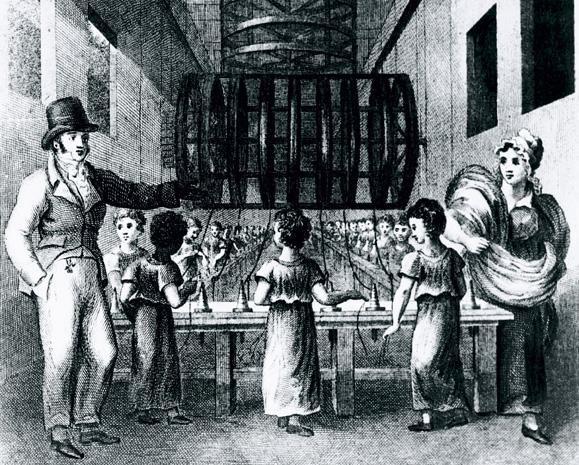 - Robespierre authorizes the development of state-funded industry inside Paris, mostly for that of war materiel. The joint Spanish-British blockade of the French mainland makes acquisition of construction materials difficult, and will delay completion of the small arms and artillery factories until sometime next year. - As per the terms of Picardie’s annexation, the Tuileries Palace is turned over to Father Roux and the People’s Catholic Church. Renovations begin immediately, with hopes of finishing before the first snowfall. Roux’s quarters consist of a strange hybrid of the surviving Renaissance structures and newly erected Goût grec frames. Construction of a soup kitchen is planned after more vital structures can be repaired. - Saint-Just, perhaps seeking to prove his own superiority, uses his wide range of political associates to fund and operate several food kitchens in Paris. These buildings are funded by completely voluntary donations from Jacobin members. Popularity for the Jacobin party increases among the poor of France, although rich party members are grumbling about the holes in their pockets. - They also open a poor house, meant to shelter the homeless during the cold months. It also provides food, legal help, economic assistance, and training to defend against the threatening non-Jacobin elements of Paris. Members are on particular alert for the Enrages, who they fear will attack them. Sadly, no struggle appears. For once, it seems the Enrages are more interested in building than destroying. 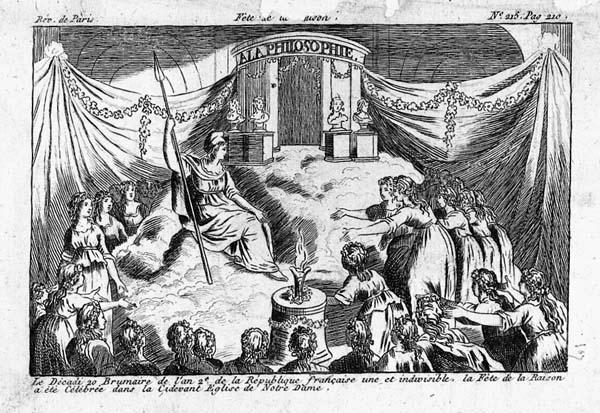 - Being the least damaged building on the grounds, the chapel is completed in early September. For the first time, the People’s Catholic Church has a religious headquarters. Father Roux delivers mass to a crowd of mixed sans-culotte and curious Parisians. - Roux delivers a speech in the ruins of the Assembly building, drumming up support for his religious organization and appeasing the poor of France. Unfortunately, the Assembly building is located in one of the wealthiest districts in Paris. His audience is very small. - An unknown source has leaked shocking news regarding the heavily contested presidential elections. Despite de Sade’s claims to the contrary, so the story goes, it was he who rigged the elections, not the other way around. With the dissolution of the office of presidency, however, and a general lack of political consciousness, these accusations mostly go unnoticed... for the time being. - This is further complicated by what appears to be a force within his own rank sabotaging his efforts at damage control. Everywhere De Sade goes, rumors spread about his possible activities and corrupt behavior. His popularity decreases, but the man knows there are rats in his Cambions. 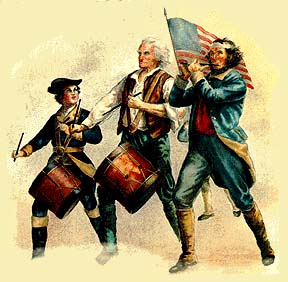 - Olympe de Gouges assembles her latest production, an experimental comedy based upon the history of the United States of America. Although Olympe introduces her own unique flair, the most unusual element of the production is brought about by tragedy. A fire at the University of Paris destroys the theatre there, leaving the ballet troupe without engagement. Olympe offers the troupe the opportunity to participate in a, “musical spectacle” by combining the ballet and music with Olympe’s drama. - Gouge’s Liberté is a staggering six and a half hours long, encompassing the birth and eventual death of the American nation. Although the cast is principally American, it is apparent to all but the dumb that the play is meant to be a thinly veiled parody of modern French politics. Alexander Hamilton is shown as a latter day Louis Stanislav, whose assassination is treated as a much needed mercy killing. The New Englanders speak in poor Breton accents. They are good-natured but misguided fools who accidentally destroy the nation. - The production, which will one day be regarded as the first musical and the first chapter of megatheatre, is disregarded by critics. They cannot understand the purpose of music or dance, calling it superfluous. Several members of the Legislative Assembly accuse Gouge of treason and monarchist sympathies. Liberté has a brief lifespan on the stage and barely makes back its costs. - The failure of Gouge’s production forces her to return to her roots. She begins writing a play based upon the Biblical assassin Judith. Early drafts draw stunning parallels with Corday and her assassination of Babeuf. Olympe stresses the main actress must look like Corday, but hires numerous actors to play the part. Corday’s appearance becomes something of a confusion as a result. - The Bretons catch wind of several Picarde officers spying on their training regimen. By the time they move to arrest them, however, the men have escaped back over the border. They report on Breton tactics to Olympe, which bolsters the Picarde capacity to fight a similar guerrila war should it be necessary. - Madame de Gouge herself is soon seen on the streets of Paris, her boldness bolstered by the downfall of the moderate government. With her she brings large bushels of wheat and food from Picardie, significantly improving her popularity and standing both within the Enrages and on the streets of Paris themselves. 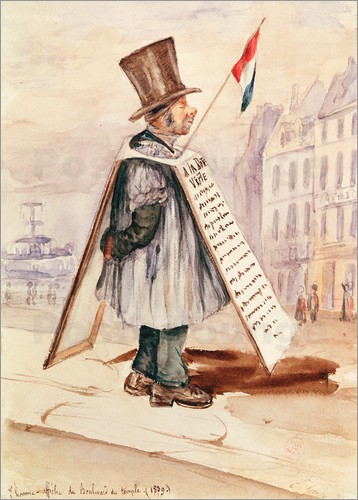 - Poor and unemployed women are spotted in cities across France, shouting speeches and platitudes to passerbys. It is a cheaper method of conveying ideas than pamphlets and hopes to reach a wider audience. The bourgeois find the concept thoroughly entertaining and invite the ladies to recite their poems in more affluent neighborhoods. Whether this is out of sympathy for the cause or to mock varies from household to household. The lower classes are less receptive to these latter day town criers, claiming they disrupt their work. - Turning away from the lower income neighborhoods, Gouge’s followers can be spotted in the rich neighborhoods of Paris wearing sandwich boards and costumes. The performances have become larger and more grandiose with the new audience. This becomes known as “putcasting”. - Saint-Just has little better luck with his speeches. The public seems nearly oversaturated and his audiences are small. He urges France to defend itself from outside aggression, but people have heard these words before. 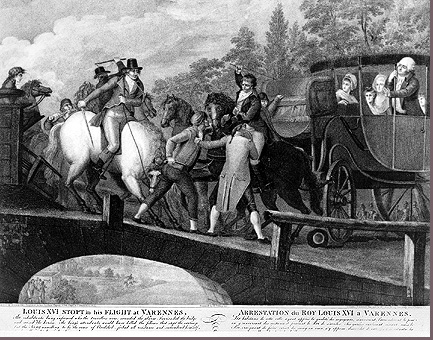 - King Louis XVIII sends out a call to any Orleanist remaining in France, offering them amnesty and protection in his court. France has grown increasingly unstable and the mob in Paris is likely to target them the first chance they get. With the Tribunal finishing its investigating and the growing bloodlust among the Paris poor, large numbers of Orleanists take him up on his offer. Wealthy townhouses in Paris are vacated suddenly. In some districts of Paris, the streets are left eerily silent. - As the cries for his blood grow louder outside, the Prussian Ambassador puts pen to paper and begins writing his memoirs with a particular focus on the events in France. It is sent through secret channels to the Prussian court, where it sees publication. The book is an overnight success and small amounts of money begin to trickle into Friedrich’s pocket. - The Marquis de Sade, with his new found authority, reopens Le Libertin newspaper with a far greater circulation than ever before. 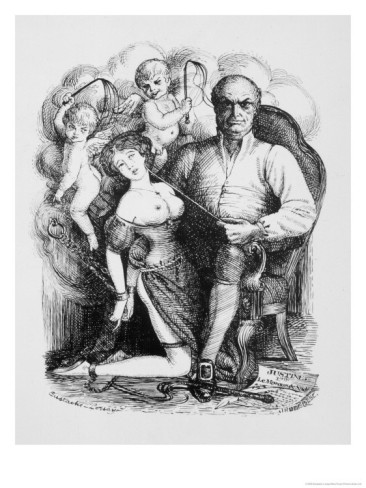 - de Sade announces the formation of a new political party, the Sadists. They promote maximum liberty, complete freedom of the press, violent atheism, and the export of the revolution to all the monarchies of Europe as the only sure manner to preserve Republicanism. They also stress the need to ensure strict checks on the government and military, absolutely no concentration of power. Using growing tensions within the Jacobin Party and the belligerence of the Paris mob, de Sade is able to win over a significant number of Jacobins. - The Department of Justice creates the ‘Elections Agency’ within the department with the purpose of preventing future voter fraud and investigating allegations of past fraud. They begin work on the French Presidential Election, with hopes of aiding the Revolutionary Tribunal in the upcoming trial. - Thousands of copies of schematics of the Watt-Hector Steam engine appear in every city and township across France, with a note explaining they are from Charles Hector. Many of these papers are destroyed by ignorant working poor, but many end up in the hands of city leaders who begin to make plans for the product when they get the resources. - With many of these schematics come piles of assignats, further inflating the French currency. French citizens are outraged and demand that the government do something to stop this apparent sabotage. The nation’s economic institutions are trembling. - Général Joseph Marie Servan de Gerbey returns to France after receiving what appears to be orders from the Council of Five. He is perplexed when none of the members of the body seem to understand what he is doing there. Shrugging, he returns to his office. A servant pours him a drink, which Gerbey accepts and places on his desk. - He is so consumed by work that he completely forgets about the beverage until he departs for his Paris residence late in the evening. Around midnight, he is awoken by the maid, telling him that a terrible accident has occurred. The maid was sleeping when she heard some wretched noises from upstairs. She went to investigate to find Gerbey’s batman convulsing on the floor of his office. Gerbey orders the servant be taken to the doctor. - At the hospital there is a moment of confusion. It seems the doctors were almost waiting for Gerbey and assumed that it was he who had been poisoned. After the servant is carted away by an unsteady looking orderly, Gerbey is forced to explain the exact situation. The doctor freezes, as if suddenly terrified. Without explanation, he departs down the hall. - Gerbey waits several hours before asking a different doctor about the status of his batman. He tells the general he will go check and goes into one of the operating rooms. There is the batman, dismembered and with his chest cut open. There is no one else to be seen. The presses go wild.
|
| # ? Dec 20, 2012 00:28 |
|
The Great Paris Fire of 1793 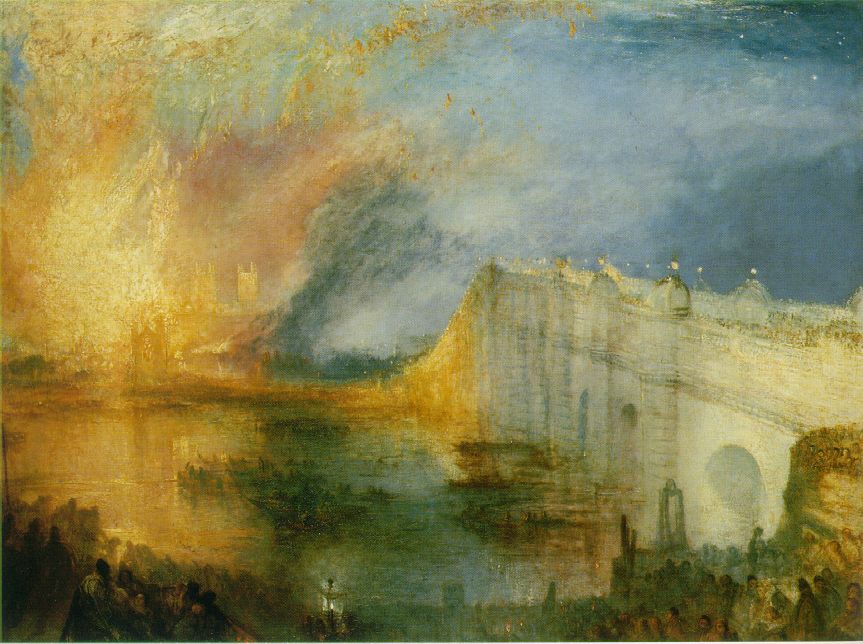 Tyger, Tyger burning bright In the forest of the night What immortal hand or eye Could frame thy fearful symmetry - It is not commonly known how the Great Paris Fire of 1793 began as the event is shrouded in secrecy and most documents were destroyed as a result of the general chaos in France at the time. What is agreed upon is that on September 21st, several investigators were hired to search the sewers and catacombs of Paris. The reasons vary, whether that be to find the mysterious Dauphin, determine the origin of the strange cult sweeping through Paris, or investigate strange rumors that Bretons were hiding beneath the streets. After several days of preparation, the men descend into the bowels of Paris. In the early hours of September 24th, a massive explosion rocked the streets of Paris. According to an eyewitness, the fire began near the Ru des St. Michel. Reports say that the nearby cemetery, “opened into a great and terrible maw, letting loose a massive pillar of smoke and fire. The street cracked and crumbled, greedily consuming those misfortunate to be travelling upon it like a wild beast.” Aided by poor disposal of feces, due in part to constant operations in the sewers preventing the public from using the facilities, and the dry fall leaves, nearby shops and businesses soon caught flame. 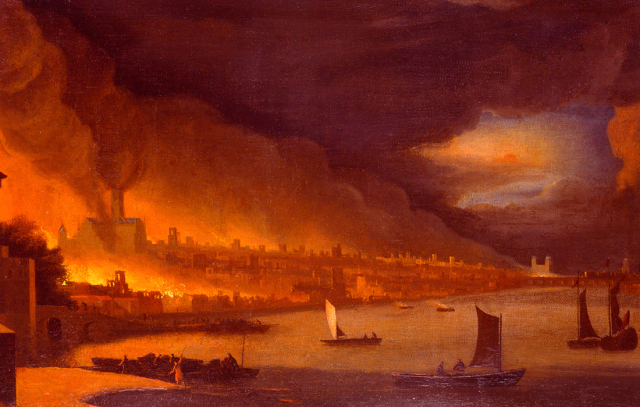 - By midday, the fire had spread from the Fourteenth Arrondissement into the sixth and fifth. Despite attempts by firefighters and civilians to contain the massive flames, the Legislative Assembly was forced to flee from their temporary meeting place in the Hôtel de Cluny to Notre Dame Cathedral, a place shielded from the mayhem by the rivers surrounding it. The Plais du Luxemburg, absolutely flabbergasted that this is now the fifth time it has been targeted in an attack resigns itself to utter destruction. Whatever remained of the building completely collapses and the ruins are engulfed in flames. 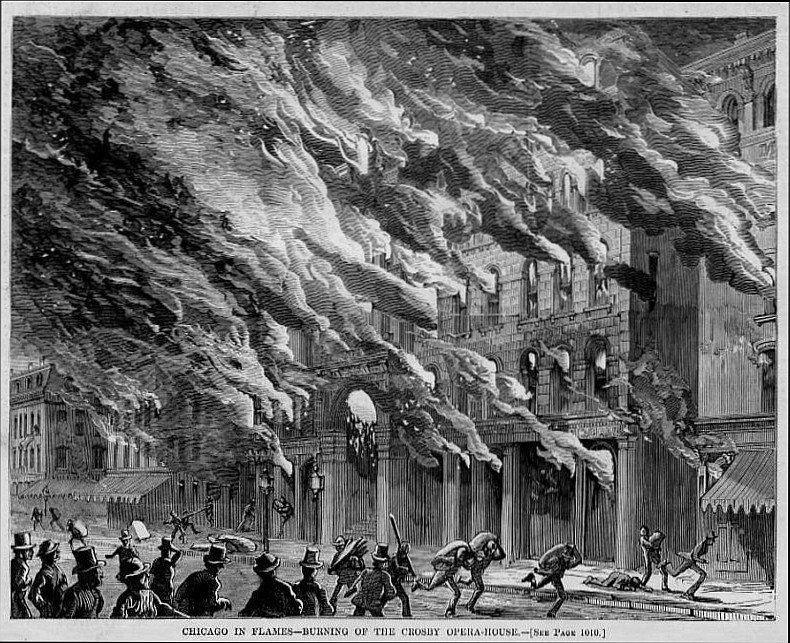 - The faculty of Paris University have been evacuated but some refuse to leave their offices, crippled either by denial or fear. Berbiguier’s remaining assistants desperately try to collect all they can before abandoning their places wholesale. They can be seen scampering across Paris, papers and strange drawings clutched in their hands. The Assas campus is the first to collapse, followed by the University’s Pantheon Campus and the Collège de Sorbonne. Most other buildings are saved thanks to their distance from the flames. This thankfully includes the medical college. It will be an essential resource over the next few days. - By September 25th, the entire northern portion of the fourteenth arrondissement and most of the fifth and sixth have been destroyed. The fire has been largely contained, thanks to a change in the winds, but looters are destroying whatever the firefighters have saved. Bourgeois are dragged screaming from their homes in Neuilly-sur-Seine never to be seen again. Various peasants violently seize control of the manors there and give themselves mock titles. A new court shall rise from the ashes, they loudly declare! The poor shall become rich and the rich poor! 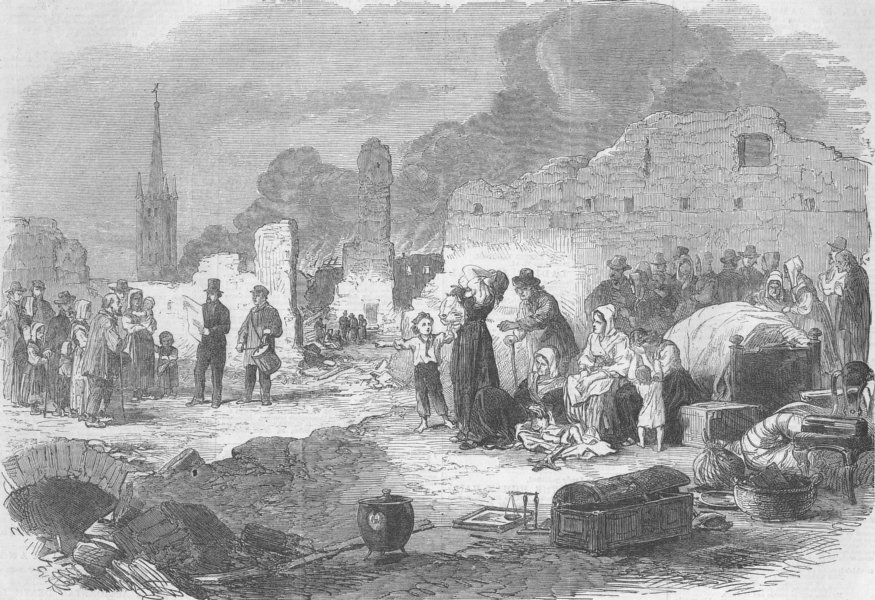 - It is only in the early hours of September 26th that the last fires are finally extinguished leaving numerous dead and countless more homeless. The Great Fire of 1793 will be remembered as the worst fire in Paris’ history. However, the problems are not over yet. The Cathedral of Notre Dame and the Paris City Hall, among other structures, are suffering from severe smoke damage. The people of France are looking at their city leaders, desperate to find someone to blame. One tenth of the city is gone. - A future excavation of the catacombs will later discover the severely bones of a tiger. It will later be put in the Musée du Louvre, as a testament to the event. Visitors note the persistent smell of sulfur on the remains. BRETON NEWS: 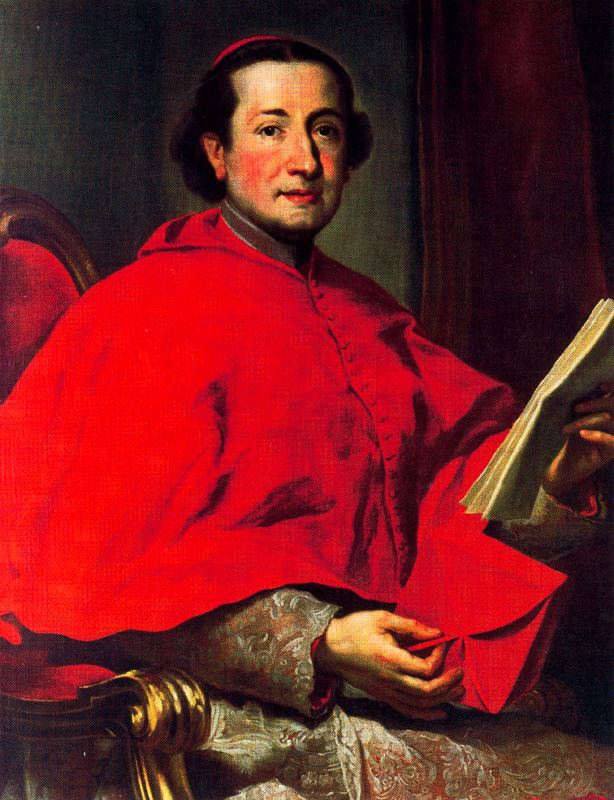 - Armand Tuffin sends a letter apologizing to the Pope for neglecting to seek his approval before creating the Kingdom of Brittany. His former Camerlengo sends a reply, stating that God will surely take mercy upon him for his good work in preserving Catholicism. However, he has no authority to ensure such a judgement. He will bring up the issue with Pius’ successor, whoever that may be. - Unfortunately, aid from the Papal States vanishes with its former leader. Brittany will have to await a decision from Pius’ successor for the clerical aid to resume. He is further denied from the Coalition, who have enough problems without having to provide bags of cash to Brittany. - Despite this diplomatic failure, Tuffin publically praises England for their efforts. While a more naive observer might interpret this as genuine gratitude, the more cynical will know that Tuffin is trying to ensure England does not abandon Brittany in any peace settlement. For now, the English seem amused and return Tuffin’s sentiments. - Tuffin, apparently having read some sensational news in the papers, suddenly demands to see Jean-François Le Gonidec. His men are confused by the order, but oblige and send him the 18 year old college student. Tuffin demands the young man work to promote the Breton culture and language, much to the Le Gonidec’s confusion. He has only just started his education and has no idea how to fulfill Tuffin’s demands. 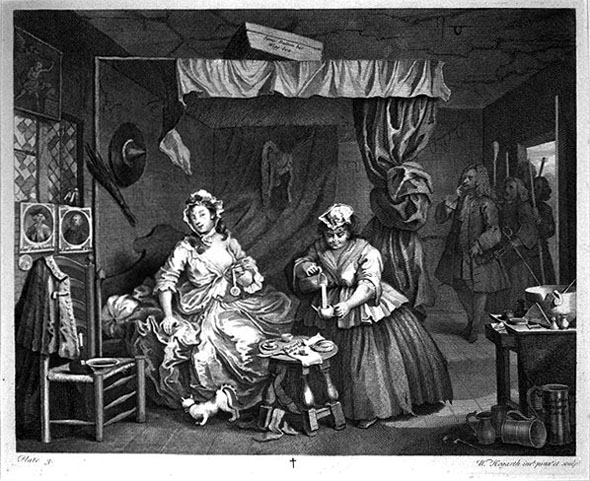 - Prostitution and straight alcohol are banned by order of the government. Although it is justified as a way of undermining De Sade’s influence in Brittany, the common people are extremely unhappy with the decision. Many choose to drink in secret instead of following government orders. Prostitutes are arrested off the street, leaving many men very frustrated. - British and Prussian officials are seen in Brittany, monitoring Breton troops, recording their tactics and sending letters to their superiors. This monitoring is a concern for both the Bretons and French. - Construction on the capital defenses in Nantes finishes to much celebration. In the eyes of the people, Brittany can now defend itself from the French menace. This in turn results in an increase in recruitment for the Breton army, as many see the nation having a real chance for survival. The increasing belligerence of France does little to quell these recruitments. - Prussia struggles to keep its embassy in Brittany open becauses of petty fighting on the Rue de IRC. Ambassador Friedrich-Wilhelm von Franco orders his officials to maintain day to day operations. - Prussian officers continue to train the Breton army, leading many to joke that Brittany is an unofficial member of the Holy Roman Empire. The efforts have positive effects on soldier morale and effectiveness. This is seen best in the artillery battalions, who have been the subject of focus in Prussia’s assistance. Breton artillery have become a formidable force in Europe thanks to constant assistance from outside powers. Attempts to improve Brittany’s sharpshooters largely fall flat. 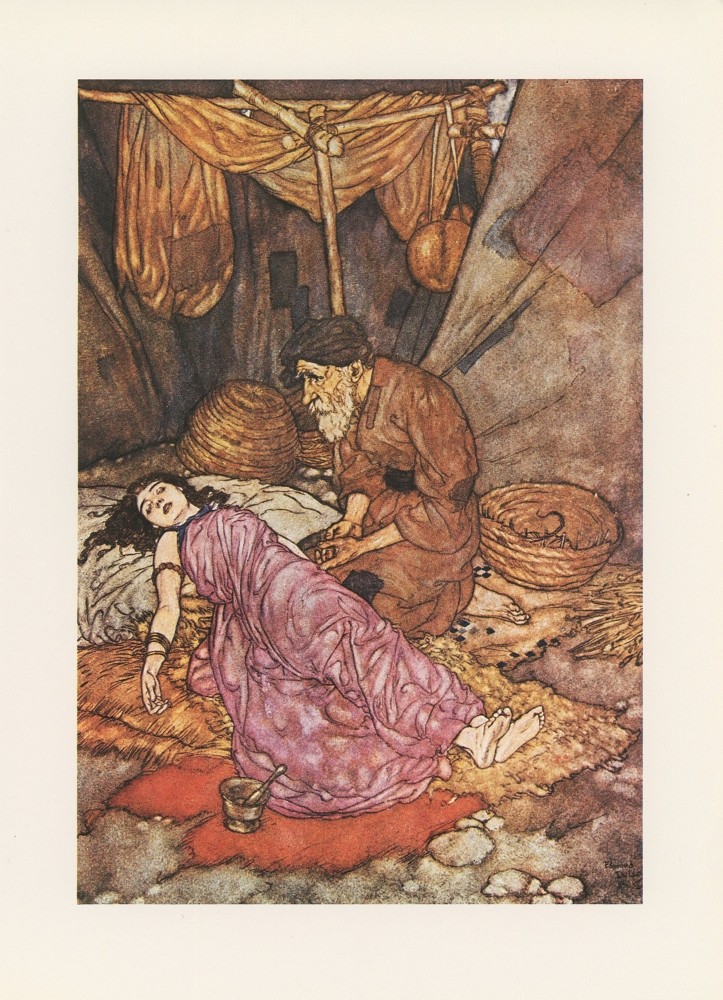 - Vicious rumors emerge from the court at Nantes. Tuffin has been abusing the Queen - denying her food and contact with the outside world unless she does exactly as she is told, in essence a puppet of the conniving Breton chancellor. The Breton public is horrified by this news, true or no, and popularity for Tuffin suffers a significant decrease. The statements have ramifications elsewhere. In France, sympathy for Mari Tereza increases dramatically. Unlike the rest of her family, Mari and King Louis XVII have surprising popularity in Metropolitan France. - Likewise, thousands of pamphlets from the young Queen herself appear in Occitania urging the people there to "shatter the chains that bind them to the rotting corpse of France". In the aftermath of the Great Paris Fire and growing uncertainty on France’s future, the people of Occitania are beginning to get restless. They do still feel a sense of obligation to France, though, to stay until the foreign menaces have been defeated. - Using extra money from tax reform, Auguste de Bonteville Hay tries to build an artillery plant. It should be ready by the winter. Unfortunately, Brittany lacks the trained workers needed to work in such a plant. Efficiency is likely to be very low. - The Archbishop is seen meeting privately with the newly proclaimed Queen, perhaps offering her a voice of counsel in these dark and troubled times. - Letters written by the Archbishop reach many of the clergy, and they reaffirm their commitment to the independent Breton state - they will do what they can to encourage support for the government among their congregation. The influence of the clerics on their parishioners can not be overstated; Brittany is a very religious country. HAITIAN NEWS: - The Haitian police begin a campaign to force former slaves back to work on the plantations, with Toussaint declaring they will cut cane or they will not eat. Despite some resistance from armed mobs resulting in a number of deaths, the order largely succeeds in restoring sugar production. However there are calls for a more egalitarian way of running the plantations, with the status quo, despite promised higher wages and conditions, seemingly little different than slavery. - Some of the more radical mob leaders, enraged at being forced at gunpoint back to the plantations, come across Babeufist pamphlets in the south. These writings inspire the men to seize several plantations outside of Port-au-Prince, driving away the police, and declaring them communes in the vein of Picarde. They issue a set demands to Toussaint, including the collectivization of sugar production throughout the newly independent nation. - Rumors circulate that Karl Josef Bachmann has landed in Port-au-Prince to join Charles Hector at his estate. No one seems to have seen him though, and Hector’s university assistants seem as perplexed about the rumors as anyone. - Charles Hector resigns from his various government posts and from his place at Le Agnes University. These moves seem to signal that Hector is planning to leave Haiti, which is confirmed a few weeks later when Hector disappears. His successors assume the vacated positions without issue, but much of the world is asking, “Where in the world is Charles Hector?” Battle of L'Etang de Riquelle 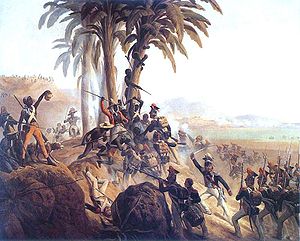 - The Haitian Army under General Toussaint’s command marches out to meet the invading Spanish at the plantation of L'Etang de Riquelle. Having anticipated the attack, the heavily outnumbered Spanish dig in, erecting basic earthworks. Despite attempts to maintain order the zealous Haitian soldiers instead charge en masse into the enemy’s fortifications. For the first hour of the battle these charges are repeatedly turned back while thousands of Haitians lay dying before them. A last desperate charge, however, manages to overrun several Spanish positions, dealing a severe blow to the invading army in the process. Realizing they cannot defeat the larger Haitian army, the Spanish sound the retreat and begin an organized withdrawal. At the end of the day over 4,000 of Toussaint’s men are dead or injured, with the Spanish suffering only 750 casualties. - The Spanish leave Haiti with Toussaint’s forces hot on their tail. As the Haitian army advances, it announces to all slaves it encounters they are free and asks for them to enlist in their army. Though this is made somewhat difficult by the Spanish-French language barrier, hundreds of freed slaves join, eager to fight for their freedom. The Spanish are chased to the city of Santiago de los Caballeros, which Toussaint orders besieged. GALLIC NEWS: - The former British envoy to the United States arrives in New Orleans and petitions the Gallic government for an audience. After several weeks, his petition is granted and he appears in court. Diplomat George Hammond attempts to improve relations between England and Gaule, claiming they are not enemies but allies through their mutual hostilities with France. He asks the Gaule government not to sit idly by while France and their ungodly, illegitimate regime plunders the earth of his valuables. 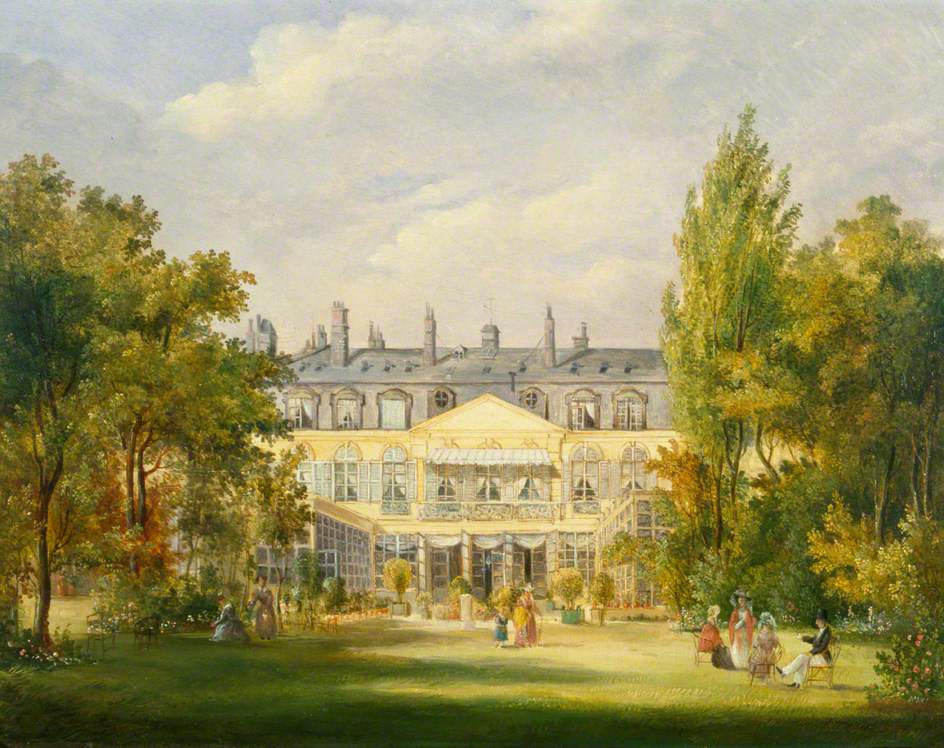 - More officials from England arrive over the next few days as ‘assistants’ to Diplomat Hammond. They integrate themselves in the Gallic aristocracy and high class, shifting public opinion in favor of England. Several civic leaders ask Emperor Napoleon to join the Coalition against France, as a way of securing international recognition and securing valuable alliances with European powers. - The Gaulian government provides its fur surplus to clothing manufacturers within New Orleans in hopes of incentivizing industrialization among citizens. There appears to be a demand for clothing production, however the capital needed to produce these goods is not there yet. Only a handful of textile factories are built in Gaule. Many new businesses are being erected, but progress on construction is slow. If Gaule wishes to industrialize, it will have to increase the rate at which these factories can be built. - Wealthy expats from Arcadia are spotted meeting with Napoleon for an unknown purpose. Some conspiracy theorists speculate these meetings are part of a grand plot, one that will reveal itself in several months time. It does not help that the army is ordered to relax and prepare instead of undergoing the strenuous training they are use to. Morale increases substantially but training suffers a very minor decrease. - Napoleon Bonaparte delivers a letter to his right hand man, Jacques Pierre Brissot, to be delivered to Aaron Burr. The contents of this letter will be the source of anxiety for countless future historians. Given the events of the following months, millions will wonder of its contents and Bonaparte’s purpose. Even more will question the loyalty of Brissot. The August Native Rebellion - On the 14th of August, 1793 settlements across northern Gaule are awakened by the smell of fire. As the men struggle out of their homes to investigate, they are attacked by natives. Hundreds die and towns are put to the torch. The number of displaced is much larger, many fleeing into either disputed Ohio territory or toward New Orleans. - Those who head south are cut off by a large army of natives, who engage in the systematic slaughter of the unlawful settlers. The army in New Orleans is forced into a quick march north to meet the native forces. When the Gallic army is spotted in the distance, the Indians melt back into the countryside. 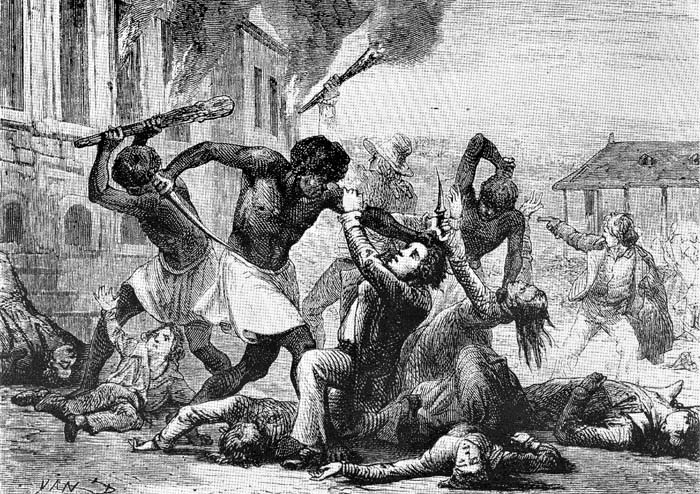 - With the army out of New Orleans, a small plantation outside the city limits suddenly experiences an uprising. Twenty-three slaves seized weapons and execute the plantation’s owners. They declare a new age of freedom for Gaule, with the intent of abolishing slavery and driving out all those who seek to continue the horrific practice. They set out to a nearby plantation, killing the men there and adding another twenty to their rank. - It is not long before the military realizes it has been duped and marches back toward New Orleans. The would-be revolutionaries are having little luck after their intial successes. Many slaves are too fearful of the ramifications of a failed revolution on their families. They do not wish to be punished. Still more are unable, whether by increasing restrictions on mobility or health issues. With news of the army only an hour away, the former slaves retreat to a deserted army depot. - The two forces get in a short lived gunfight. The small shack in which the slaves have hidden themselves is filled with bullet holes. All but four die. They are immediately hung for treason. - Despite the failure of the Slave rebellion, the Indians up north are still up in arms. Under the leadership of Chief Red Thunder of the Yanktonai Sioux tribe, a grand council has been organized. The Sioux Confederation announces its control of everything north of the Niobrara River. Other looser and less organized coalitions have claimed various parts of northern Lousiana. The city of Bona has become the northernmost settlement of Gaule in the course of a few short days. - Brissot is last seen booking passage from a shipping company in Charleston. He has left the continent (and Gaule) behind him. Some Girondins he left behind suggest he has gone to France, but even Napoleon is not sure. FOREIGN NEWS: 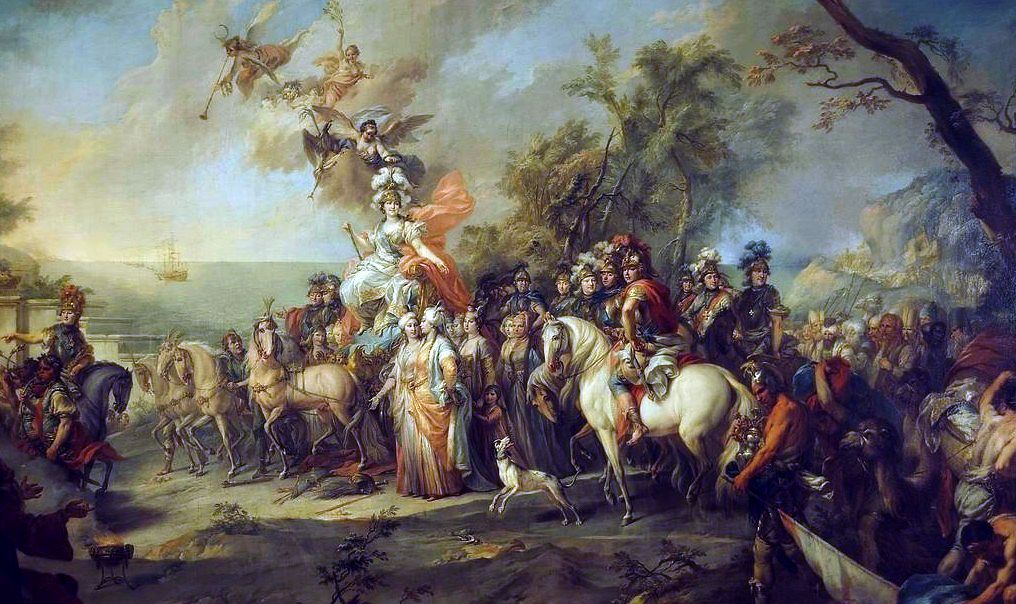 - 35,000 Russian Soldiers march across the Ottoman border and through Romania, making short work of the Ottoman troops stationed there. In the initial invasion 700 Russian troops and approximately 8,300 Ottoman regulars are killed. Sultan Selim III struggles to react as the Russian flag is hoisted over Jassy, signalling the fall of the first Danubian Principality. - The Russian invasion is supplemented by a sudden surge of Austrian troops further into Ottoman territory. Using the captured city of Sarajevo to organize his forces, Archduke Charles encircles Belgrade. He orders the city to surrender or face Austria’s wrath. - Russian troops are on the move again, this time southward. It will be some time before they arrive at their destination, rumored to be Bucharest. - British fleets bombard the Ottoman coast, severely decreasing the Empire’s support in the Balkans and putting many coastal towns into disrest. There is blood in the water. 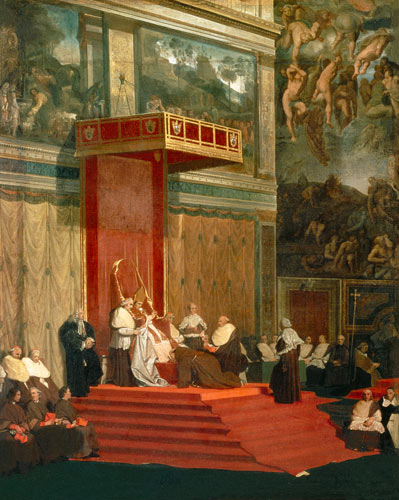 - Pope Pius prematurely perishes when the ceiling above his apartment mysteriously collapses. The Catholic world is stunned by this unusual and unexpected death. Not since Pope John XXI has such an incident occurred. A new election is called and the Papal States is left without a leader. - The Marquis de Lafayette, now an officer in the Virginia Militia, begins an investigation into the disappearance of his friend George Washington. Every square inch of Mount Vernon is combed over, and all the neighbors questioned thoroughly, but no real clues have so far been found. - Burr authorizes an invasion of South Carolina after the latter’s government refuses to accept a petition by the Carolinian people to join the Dominion of Southern America. The supposed document is fraudulent and a bald faced attempt by Burr to gain territory. The First Carolinian War begins. 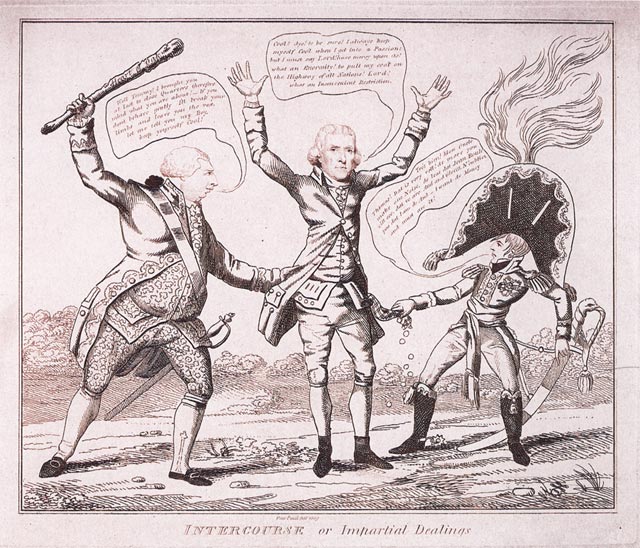 - Thomas Jefferson is attacked by a mob of monarchists while leaving his home in Virginia. Jefferson has been one of the most prominent critics of the Virginian Empire, encouraging locals to rise up against the unlawful rule of Emperor Short. He is found hanging from a willow tree several days later. The incident triggers mass emigration by Republicans from Virginia to New England and New York City. They hope to build a better nation unsullied by short-sighted monarchists. - John Adams arrives in New York to discuss the issue of the Western Reserve and settlement by New Englanders in Northern New York. He is joined by an ambassador from England, who hopes to expand trade with the American Amsterdam. - Pennsylvania turns away envoys from Virginia, New York, and Southern America. It is the last state to maintain neutrality in the issue of the American collapse. However, growing economic instability in Philadelphia shows the state cannot maintain independence. A decision must be made soon on who to join. - Sweden undergoes a cultural revolution, with the works of composers like Joseph Martin Kraus rising to prominence in the court at Stockholm. He will be called the “Swedish Mozart” in later years, though unfortunately the young musician dies fairly early in the season, at the very height of his fame. - The Prussian Ambassador to France pushes for reform within the military, making the case that unless Prussia adapts it will be forced to swear fealty to the diabolical French republicans. His words help spur Prussia into action. After months of inaction, their massive armies finally begin to move toward the border both to train and to tackle France head on. Prussia accepts a commission for Jaeger troops. 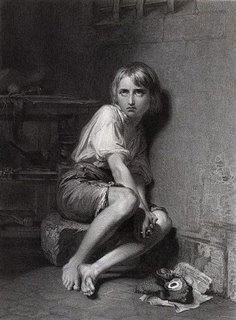 - King Louis XVIII organizes a search for his nephew, in hopes of finally putting to rest the issue of his survival. Several royalist agents from his court are sent to Castle Hapsburg to investigate a rumor that the Dauphin may have been hidden. After less than three days of searching, the men emerge with the body of a young boy around Louis Charles’ age. He appears to have been killed sometime ago, leaving the body practically unidentifiable. They report back to the world that King Louis XVII is dead. A large portion of Xavier’s doubters are forced to accept his kingship. Until a challenge is raised, this is far too great evidence to ignore.
|
| # ? Dec 20, 2012 00:29 |
|
La Nation, la Loi, le Roi- A France NationSim Country: République française (French Republic), established 20th of September 1792 by the ratification of the constitution by the Emergency President of the Legislature and the provisional President of France. Population: 28,000,000 as of the last census (1790) Year: Autumn 1793 (turns represent 3 month seasonal cycles) Metropolitan France 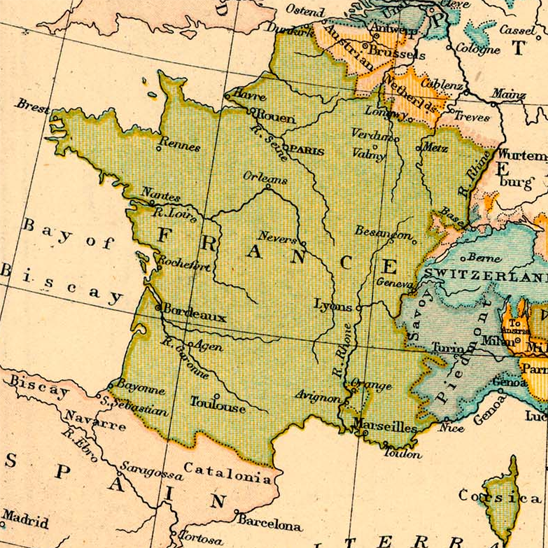 548x548 =Economy= - =Economic Sectors= Agriculture: 83% Manufacturing: 10% Trade: 7% Growth Rate: 0% = Unemployment: 18% =Government= 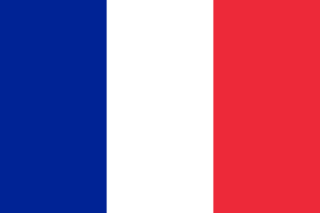 A new constitution is currently being drafted. - Popularity: Mediocre System: Unitary Republic with Directorial Head 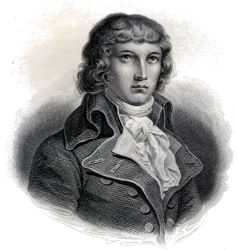 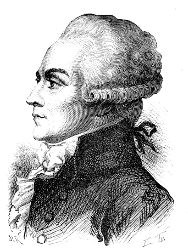 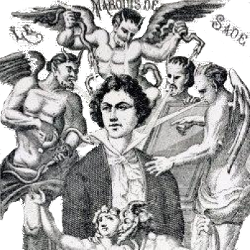 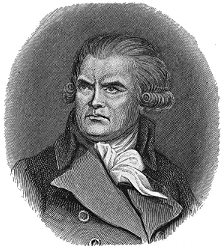 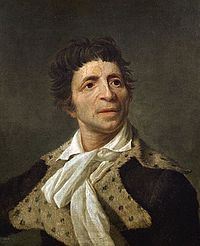 Committee of Five: Louis Antoine Léon de Saint-Just/Epicurius (epicurius at aol.com), Maximilien de Robespierre/sniper4625, Donatien Alphonse François, Marquis de Sade/Fall Sick and Die (ccferrara@gmail.com), Georges Jacques Danton/Vacant, Jean-Paul Marat/Vacant Popularity: Mediocre Supporters: Bourgeoisie, urban workers, Jacobins National Assembly: 700 Seats (422 Jacobins, 187 Orleanists, 91 Independents) Elections: Members of the National Assembly are elected every year on a national basis. There is one deputy for every 40,000 citizens. President is elected every four years. Suffrage: All men over the age of 21. Pretenders to the throne: 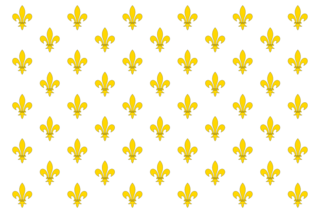 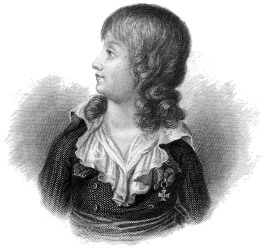 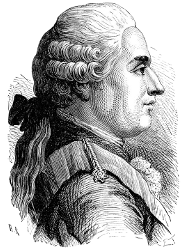 Legitimist King: Louis XVII de Bourbon (unplayable, presumed dead) Second Legitimist King: Louis XVIII de Bourbon/Takanago (ktakanago@gmail.com) Popularity: Mediocre Supporters: Nobility, Emigres, Moderates Laws of Succession: Agnatic Primogeniture =Foreign Relations= Holy Roman Emperor: War/Bad Prussia: War/Bad Great Britain: War/Very Bad Russia:: Peace/Bad Poland-Lithuania: Peace/Good Spain:: War/Very Bad Sweden: Peace/Bad Denmark-Norway: Peace/Bad Brittany: War/Extremely Bad Portugal: War/Mediocre Sardinia-Piedmont: War/Bad Naples/Sicily: War/Bad Dutch Republic: War/Bad Switzerland: Peace/Mediocre Ottoman Empire: Alliance/Good United States of America (New England): Trade Agreement/Mediocre USA (in New York City and New Jersey): Trade Agreement/Extremely Bad Empire of Virginia: Trade Agreement/Poor USA (in South Carolina): Trade Agreement/Good Republic of Vermont: Peace/Neutral Commonwealth of Southern America: Peace/Extremely Good =Cabinet= The choice and dismissal of Ministers pertains solely to the President. The members of the Legislative Assembly may not be appointed. All powers exercised by the President must be approved by at least one other minister before it can take effect. Most minister’s executive privileges have been temporarily suspended. Minister of Foreign Affairs: Vacant (PRESIDENT MUST APPOINT) The Minister of Foreign Affairs is tasked with maintaining relations with foreign nations and the protection of French citizens abroad. Given the sheer number of war declarations coming in daily, he is doing rather poorly. 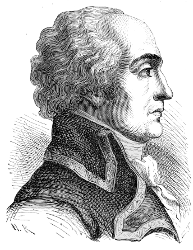 Minister of War:Général Joseph Marie Servan de Gerbey/A RICH WHITE MAN The Minister of War has total control over the French Army and is responsible for the protection of French border provinces. Given international hostility toward France, the execution of this duty may be difficult. Minister of the Marine: Vacant (PRESIDENT MUST APPOINT) The Minister of the Marine has jurisdiction over all seafaring French vessels and the colonial territories. It is his duty to ensure the protection of trade. 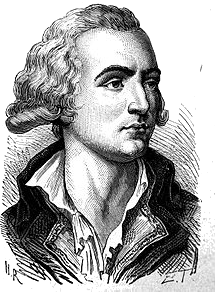 Minister of Justice: Marguerite-Louis-François Duport-Dutertre/ZearothK (zearothk@trioptimum.com) The Minister of Justice is responsible for all judicial affairs within France and ensuring the rule of law is maintained. Minister of Finances: Vacant (PRESIDENT MUST APPOINT) The Finance Minister is charged with maintaining state finances, agriculture, industry, commerce, roads and estates. Due to the poor state of the French economy, the position is in a state of turmoil and officials here rarely last long. =Factions= 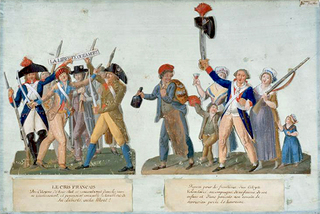 320x214 - Club des Jacobins  237x250 Radical Republican (Montagnard) wing led by Louis Antoine Léon de Saint-Just/Epicurius (epicurius at aol.com). Liberal Republican (Girondin) without leadership, most fled. Faction is predominantly Montagnard. The Jacobins are the radicals of the French Revolution. They now call for increasingly extreme measures, like the abolition of the Catholic Church and the extermination of all enemies of the state. Their headquarters has been destroyed in a mysterious bombing. Represented by the colour red. - Parti Orléanist 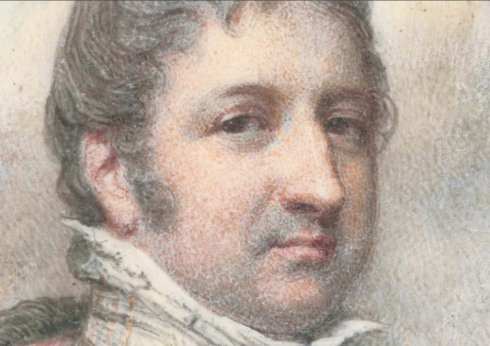 490x346 Moderate Republican. No leadership. In disarray following the defeat of Louis Philippe in the elections, the flight of Lafayette and total Jacobin dominance of the Republican government. Many fear the guillotine. - Monarchistes Français  183x250 Reactionary Monarchist, led by Louis XVIII/Takanago (ktakanago@gmail.com) (OUTLAWED) Although they are not represented in the Legislative Assembly, this group represents an alliance between members of the former aristocracy, who wish to see a return of the absolute monarchy and landed aristocracy, and marginalized minorities like the Bretons who chafe under the centralization of the state. Although many fled following the ratification of the Constitution, those who remain in France have strong funding from outside parties. Now, the monarchists are based primarily around Brittany, though they have substantial support in northwest France. - Les Enragés 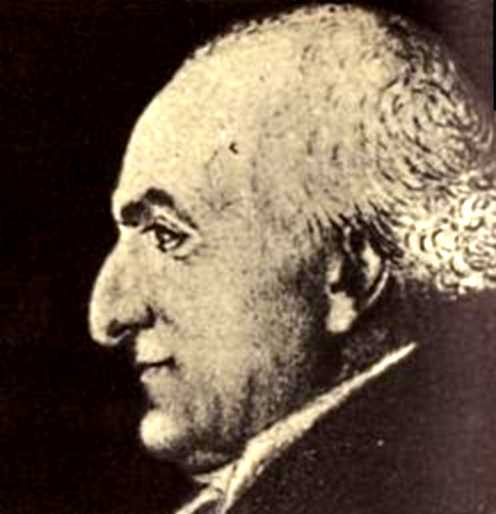 496x514 Babeufist (Populist Left), led by Jacques Roux/Stalingrad (stalingradlenin@gmail.com) The crippling bread prices and a general lack of work in Paris have given some popular support to a movement that might otherwise have been a footnote of history. Even more radically left than the Jacobins, the Enragés rely on the support of the common man and encourage a thoroughly radical revolution. With the death of Babeuf and the betrayal of Madame Gouges, they rely solely on Roux for leadership. Departments: Following the ratification of the French constitution, the provinces of France were destroyed and the lands of the aristocracy dissolved. In their place, the Legislative Assembly established 82 departments. Each department is ruled by an Administrator and receives three representatives in the Legislative Assembly, except Paris which receives only one. b]=Military=[/b] 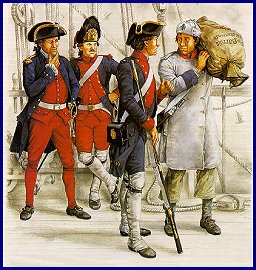 256x270 The French military has initiated major reforms since the establishment of the Republic. Although France still struggles from defections and difficulty training soldiers, these problems are slowly being resolved. At the moment, France’s most pressing concern is the First Coalition who threatens to destroy the nation and its people. Grande Armée de la République 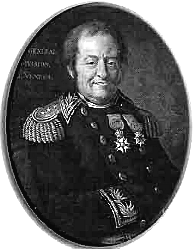 196x250 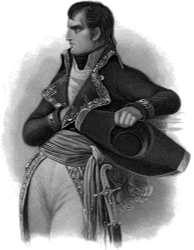 194x250 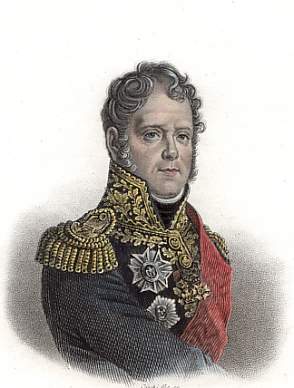 294x388 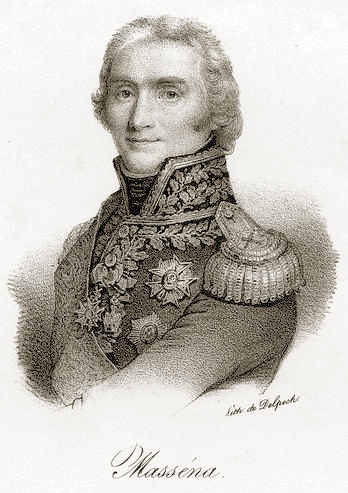 348x493 Maréchal de France: VACANT (President must appoint) Forces: 300,197 soldiers, 16,353 cavaliers, 324 cannons --- l’Armée du Nord [66,723 soldiers, 5,500 cavaliers, 50 cannons. Brussels. Général André Masséna/Viscardus] --- l'Armée du Rhin [24,576 soldiers, 2,692 cavaliers, 50 cannons. Trier. Jean-Baptiste Bernadotte/JosefStalinator/ (josefstalinator@gmail.com)] --- l’Armée Expéditionnaire [17,345 soldiers, 30 cannons. Gaule. Napoléon Bonaparte/YF-23 (yfaltmiau at hotmail dot com)] --- l’Armée du Centre [=69,390 infantrymen, 1,000 cavaliers, 24 cannons. Blois (Divided Across France). Général Joseph Marie Servan de Gerbey/A RICH WHITE MAN --- l’Armée des Pyrénées [35,000 soldiers, 5,000 cavaliers. Spanish Border. Charles François Dumouriez/vacant] --- l’Armée des Alpes [47,512 soldiers. outside Turin. Général Michel Ney/rakovsky maybe (rakovskymaybe@gmail.com)] French Navy 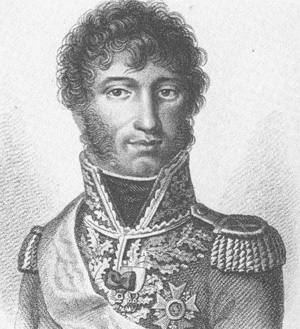 300x329 Admiral: Joachim Murat/stalin-chan (stalin@c0balt.com) Forces: 66 ships of the line, 61 frigates, 45 corvettes, sizable merchant marine Organization: 2 fleets, several smaller patrols --- Flotte de l’Atlantique [assigned 35 ships of the line, 30 frigates. In port. commanded by Louis Thomas Villaret de Joyeus/vacant] --- Flotte de la Méditerranée [assigned 31 ships of the line, 26 frigates. based in Toulon. commanded by Louis-Armand de Rohan Constantine/vacant] Situation: New command structure, many remaining officers skeptical. Many vessels in disrepair. Swiss Guard 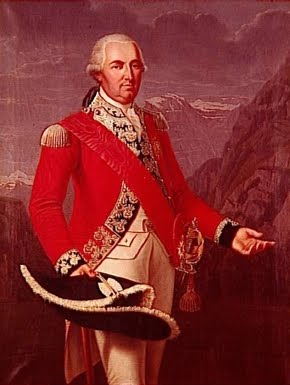 290x385 Oberst: Major Karl Josef von Bachmann/Enjoy (sw_faulty at hotmail dot com) Forces: 130 guardsmen (in prison), 100 guardsmen with the Dauphin Situation: Highly trained, highly effective mercenaries serving as the King’s personal guards. Their forces were shattered by the National Guard in an assault on the Royal Palace. The Swiss government is outraged by the slaughter of their citizens and struggling on how to respond. =Foreign Threats= 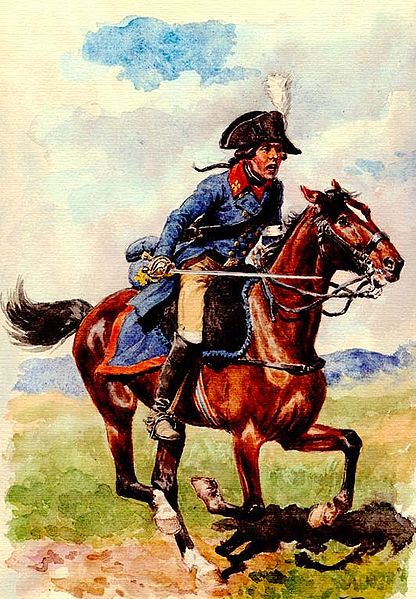 416x599 French Catholic and Royal Army Commander: Louis XVIII, King of France and Navarre Sponsors: Prussia, HRE, Great Britain Forces: 2285 Gallowglass mercenaries, 7417 infantrymen, 2330 cavalrymen and one squadron of hussars Situation: Besieging Bordeaux. Excellent training, fair morale. Well-armed. Queen’s Association Commander: Various, disorganized Sponsors: Quebecois wealthy, American and British intellectuals Forces: 700 fighters (Montreal), 500 fighters (Philadelphia), 175 fighters (London) Situation: Extremely well-armed and high morale, but non-existent training. ‘Fighters’ consist solely of armchair intellectuals and bored upper class. =Rebellions and Militias= Babeufist Farmer’s Revolutionary Collective Leader: Gaius Gracchus, Tribune of the People/Red Cesar Ideology: Babeufist Popularity: 15% in Picardy Forces: 4301 peasants, 25000 theoretically available for mobilization Situation: Organized following the death of Babeuf and the uncertain future Babeufists face in France. Some support undercut by the Land Reform act. Ar Diebiñ Bretoned Leader: Aimé Picquet du Boisguy Ideology: Breton Nationalism / Conservatism Popularity: 35% in Brittany Forces: 4890 peasants, 40 noblemen Situation: Recently distributed muskets and farming instruments. Aid from unknown source has stopped due to blockade. Some training. Great morale. La Garde Liberatione Leader: Olympe de Gouges Commanders: Olympe de Gouges Ideology: Women’s Liberation Loyalties: Mostly Enragés, with some Jacobin sympathies Popularity: 3% in Marseilles, 1% in Toulon Forces: 387 sans-culottes, 427 “working women” Situation: Volunteer militia formed after the March on the Champs-Élysées, made up of disenfranchised peasants and artisans. After betraying Babeuf, many deserting the organization! La Garde Libre/The Cambions  250x250 Commander: Donatien Alphonse François, Marquis de Sade/Fall Sick and Die (ccferrara@gmail.com) Ideology: Far Left/Anarchism Popularity: 2% in Paris, 10% in Gaule Forces: Unknown Situation: Where are they... ? Normandy... ? Not many are sure, but all tremble in fear. Especially Bretons. Haiti Leaders: Several, in disarray 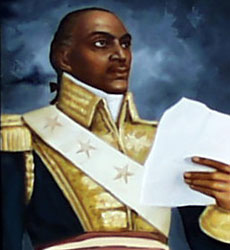 230x250 Commander: Toussaint Louverture/EccoRaven Ideology: Abolitionist Popularity: 85% among black Haitians, no support in Metropolitan France Forces: 28,210 slaves, 3 cannons, 1 mortar Situation: Morale is very high, training is mediocre but improving. Occupying all of Saint-Dominique. Other Important Individuals and Groups: Archdiocese of Paris With the confiscation of church property and the subjugation of the clergy to the state, the influence of the church hierarchy on France is theoretically minimal at best. In reality, however, many voiceless Catholics still place their church first, and no one is in so good a position to take advantage of that trust as the Archbishop of Paris. 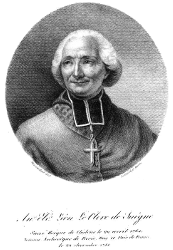 173x250 Archbishop: Antoine-Éléonor-Léon Leclerc de Juigné/Cozy Hemp Mines (Cozyhempmines at googlemail) American Embassy to France Although he may not wield significant power on the European stage, the American ambassador and his government serve as symbols of democracy and republicanism. He has gotten himself into a spot of trouble with the Jacobins as of late. Matters are further complicated by the destruction of his embassy. 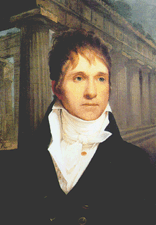 Ambassador: William Short/Tao Jones (sa.taojones at gmail) Swedish Embassy to France The Swedes would seemingly be an irrelevant power were it not for their potential to counter the Russian threat to France. 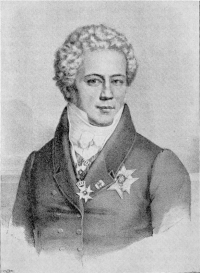 200x273 Ambassador: Gustaf af Wetterstedt/Hutter British Embassy to France Along with setting British foreign policy concerning France, the current ambassador also has a vast amount of personal wealth to draw upon. 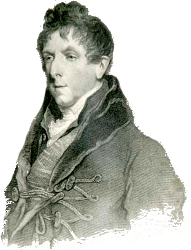 191x250 Ambassador: Duke George Leveson-Gower/Incy (incysa at gmail) Prussian Embassy to France The Prussian ambassador is among the most virulent of enemies of the French state. 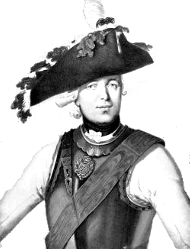 191x250 Ambassador: Friedrich-Wilhelm von Franco/Ramba Ral  209x247 Claire Lacombe/Rincewind Noted feminist and playwright, Lacombe is certain to be an entertaining character of the Revolution. 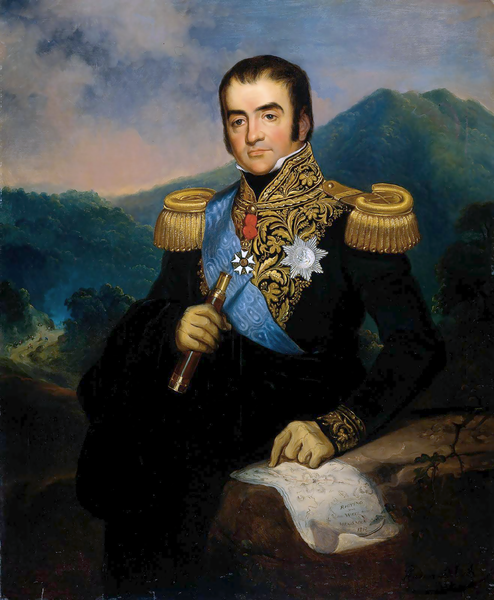 494x600 Herman Willem Daendels/Brutus Salad (xerxes.ihatespartans@gmail.com) Leader of the Patriottes faction outside of the Netherlands, he seeks the overthrow and end of the autocratic Dutch Republic and the institution of a true republic in the region. To this end, he has cast his lot in with the French. 420x600 Marquis de Condorcet/Diplomaticus A leading thinker in an informal but increasingly solid intellectual and scientific movement, whose members are commonly called “Les Philosophes”. A scholar, theoretician, and philosopher. 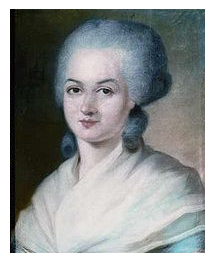 216x268 Marie Gouze/Maxico Roberto (maximo . roboto on Gchat) Although initially in support of the Revolution, Marie Gouze was disenchanted when she learned women would not be allowed to participate. She is an influential writer in Paris but extremely controversial. 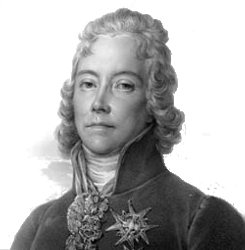 245x250 Charles Maurice de Talleyrand-Périgord/Spirit Tree (bdralmynac at gmail dot corn) A cunning French diplomat and, some say, an influential figure in the developing French political scene. 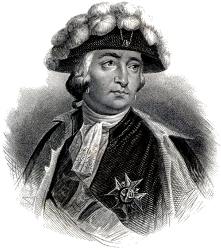 221x250 Louis Philippe, “Citoyen Egalité”/vacant Former Orleanist King and President of France, narrowly lost his reelection. =Stats= 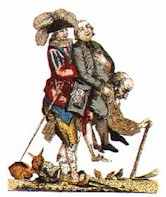 Agriculture: Undercapitalized with below average average crop yields. Poor harvests have lead to unfavorable conditions for local markets. Situation was improving, but blockade means France will have to be self-sufficient. Industry:: Mostly textiles, with some mining and metalworking. Stabilized somewhat by ample subsidies and an influx of cotton from America. American markets also proving quite amenable to French manufactures, but British blockade threatening to rob this avenue from France. New projects in the Rhine completed, bringing in massive immigration and industrializing the region. Unfortunately, this region is no longer under French control. Food: Mild famine has resulted in a massive spike in prices but agricultural investments have resulted in a minor improvement in diet. Brittany is struggling heavily but surviving. Nobility and bourgeois eat well. Thousands of Parisians who survived the fire are starving. Labor: No restrictions on working hours or hiring practices Education: 52% literacy for men, 37% for women. Based on the apprenticeship system, with Catholic seminaries being used as an alternative for poor families. Some seminaries expanding admission thanks to education budget increases. Private tutors used for nobility. Public Health: Paris is currently experiencing a humanitarian crisis the likes of which it has not seen since the Hundred Years War. The Paris sewer system has been almost totally demolished thanks to constant bombings. Health care largely provided by the clergy, who now receive funds from the state for that purpose. Crime: Approximately 3,660 officers are used to defend strategic sites like the palace, royal mint and major roadways. They are well-trained but completely incapable of keeping up with the massive amounts of violence in Paris. Most have abandoned the city altogether. Trade: Forced to turn to conquest as a means to secure the flow of goods into France. Colonies: Mostly in the Caribbean and India, holdovers from numerous unsuccessful wars against Britain. The loss of Gaule has led the French government to completely defund its colonies, leaving many in a state of turmoil. Many look to Haiti as an example. Finance: Assignats have largely replaced the livre as the de facto currency of France. Inflation steadily increasing thanks to Robespierre’s budget and sovereign default. Urbanization: Less than a quarter live in cities. Population growth primarily in rural areas. Religion: Catholics dominate political life but Calvinists and Jews are tolerated. The Civil Constitution of the Clergy makes priests direct employees of the state. Ethnic Groups: 53% French, 46% Occitan, 1% Corsican. Official toleration of local languages but increasing momentum towards French as the sole language of the state. =Budget= Due to the poor economic policies of the monarchy, the treasury of France was bankrupt by the time the Constitution was enacted. In order to ensure economic stability, church property was forcibly seized and used as a standard for the currency. Despite the decrease in royal power, a large portion of the yearly budget was used to build and maintain the property of the nobility. As a consequence of underfunding the police and low accountability among tax collectors, Revolutionary France often had difficulties collecting taxes. [quote]Budget Contributions Directes: Tax Efficiency: Somewhat Low 50% tax on nobility (14) 20% tax on bourgeoisie (10) 15% tax on the petit bourgeoisie (3) 0% tax on working poor (0) 60% tax on land and estates (35) Debt Current Market Interest Rate: 15.0% Debt growth per turn: 0 Payments to debt interest per turn: 13 credits Payments to debt reduction per turn: 0 Debt Credits: 432 ---432 credits to various private investors [at 3.0% interest rate] Possible creditors: Private investors. Very tenuous after partial default - most private citizens wonder what is stopping the French government from defaulting on them. Loans in Default: Debt Credits: 112 ---105 credits to Swiss banking houses ---17 credits to Dutch banking houses Trade Tariffs: 10.0% tax rate on all overseas imports and exports. [all trade income NOT COLLECTED due to blockade] Trade Deals: Free Trade Compact w/ America Government Revenues: Minting: 26 (+2.6 inflation/year) (from 10/+1.0pa) Inflation: 9.12% Manufacturing: 4/8 (Funding Protected) Agriculture: 5/7 (+1) Infrastructure: 4/10 (Funding Protected]) Transportation: 2/6 (Funding Protected) Culture: 0/6 Police: 9/12 (-3) National Guard: 2/8 (Funding Protected) Army: 25/16 (Funding Protected) Navy: 4/14 (Funding Protected) Intelligence: 1/6 Courts: 1/5 (Funding Protected) Clergy: 2/5 (Funding Protected, +2) Education: 3/8 (-1) Healthcare: 0/9 (-2) Colonies: 0/12 (-7) Food Relief: 3/6 (-3) Interest Payments: 13/13 (+13) Subtotal: 78 Yearly Credits: 88 Free Credits: 20 Kentoc'h mervet eget am zoatran- A 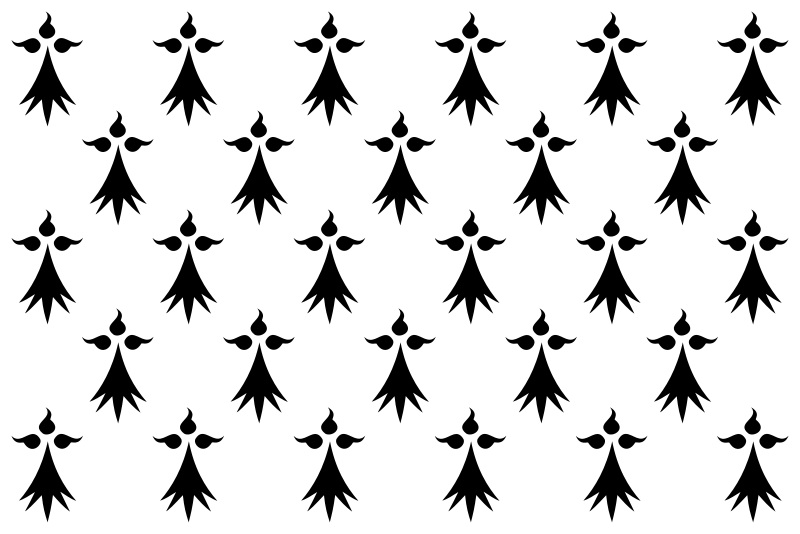 800x534 Country: Ar Dizalcʼh Votadeg Dugelezh Breizh (The Independent Elective Duchy of Brittany), established 8 November 1791 by the ratification of the signing of the Breton Declaration of Independence Foreign Relations: Excellent relations with the United Kingdom, great relations with the Papal States, good relations with Prince-Bishopric of Liège, neutral relations with the United States, at war with the French Republic Population: 1,680,000 Year: Winter 1792 (turns represent 3 month seasonal cycles) Metropolitan Brittany 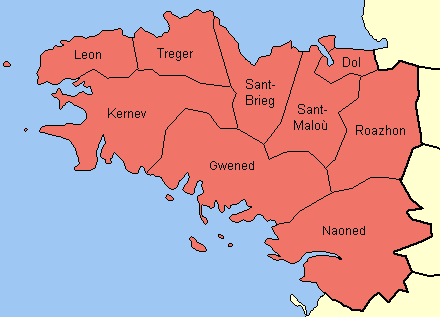 440x317 =Economy= =Economic Sectors= Agriculture: 88% Manufacturing: 12% Trade: 0% Growth Rate: 2% = Unemployment: 15% =Government=  320x213 Popularity: Good System: Feudal Elective Kingdom 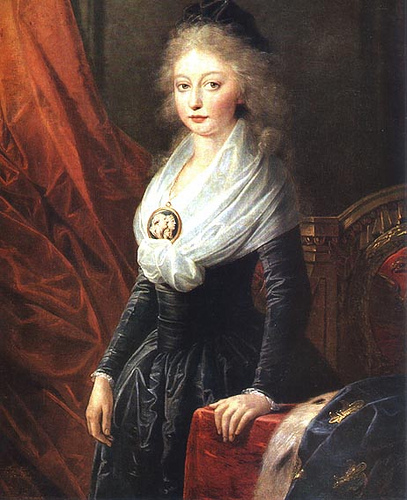 407x500 Queen: Mari Tereza I ar Vourboned/Gantolandon
Laws of Succession: Agnatic-Cognatic Elective Heir Apparent: To be decided. Noble Assembly: 145 Seats (120 Marians, 20 Independents) Popularity: Mediocre Steward of the King: Charles Armand Tuffin, marquis de la Rouerie/Gorgo Primus Elections: No elections held. Suffrage: None at the national level. Nobles cast votes for King upon the death of the preceding monarch. =Royal Council of Brittany= The Royal Council of Brittany was created on 5 November 1792 with the goal of improving administration within Brittany. Although technically membership is determined by the Duke of Brittany, in practice the Steward of the King is responsible for the body and its upkeep. 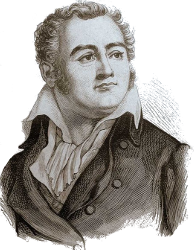 194x250 Veur Chancellor: Georges Cadoudal/Arujei (rjohnlennon@gmail.com) The Veur Chancellor’s duties are strongly based off the position of Foreign Minister in the French government. He is charged with diplomacy, foreign affairs and maintaining national morale. As a newly established nation, Brittany’s primary goal will be to gain recognition by other states. 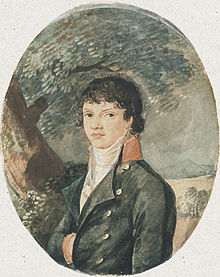 220x277 Veur Marshal: Aimé Picquet du Boisguy/Rogue The Veur Marshal represents a revival of ancient feudal tradition. With a focus on military matters and war, the marshal’s responsibilities are all that stand between independence and annexation. 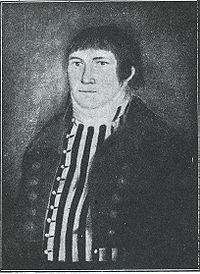 200x274 Veur Steward: Auguste de Bonteville Hay/TaoJones Unlike France, Brittany has few economic woes. It is a new nation, with bright economic prospects ahead of it. The Steward determines the budget, oversees tax collection and ensures the authorized use of funds.  194x250 Veur Spymaster: Georges Cadoudal/Arujei (rjohnlennon@gmail.com) In most states, the ‘secret service’ does not constitute an official part of the government and exists in a legal grey area. Not so in Brittany. Overseer of all domestic and foreign intelligence, the spymaster serves as the official eyes and ears of the government.  173x250 Veur Chaplain: Titular Archbishop Antoine-Éléonor-Léon Leclerc de Juigné/Cozy Hemp Mines (Cozyhempmines at googlemail) The Chaplain is responsible for matters of religion and culture within Brittany and is the Catholic Church’s foremost representative in Brittany. The position is an interesting one in that it is not subject to government regulation and appointment appertains solely to the Pope himself. Other Important Individuals and Groups: =Stats=  Agriculture: Poor, farm focused economy. Slow improvement because of foreign imports and exports Industry: Exclusively textiles. It is not clear whether Brittany qualifies for the Free Trade Compact with the US, as such rates of sale tends to vary drastically Food: Although food is scarce, the situation is improving thanks to British and Ottoman aid as well as government food programs. Labor: No restrictions on working hours or hiring practices Education: 39% literacy for men, 28% for women. Based on the apprenticeship system, with Catholic seminaries being used as an alternative for poor families. Private tutors used for nobility. Public Health: Major cities contain small sewers but require updated water systems. Crime: Underfunded system in place for crime and punishment. Remnants of the old French system still in place but barely functioning Trade: Limited trade with foreign nations thanks to ineffective blockade Colonies: No interest in colonies, especially in a time of crisis. Finance: Lack of trust in new currency, the Breton florin, exclusively minted in Breton provincial capitals. Urbanization: Less than a fifth live in cities. Population growth primarily in rural areas. Religion: Catholics dominate political life. Religion reasserting authority under Breton homerule. Ethnic Groups: Mostly Breton, with Frenchmen clustered on the border. Sporadic attacks occurring on French speakers have finally stopped. =Military= Army of All Brittany General: Charles Armand Tuffin, marquis de la Rouerie/Gorgo Primus Forces: 17580 soldiers, 300 cavaliers Organization: None Situation: Good morale, decently trained. About half of the men have arms fitting their duties. Sharpshooter regiment has experimental new rifles. pre:=Budget=
=ECONOMIC DATA=
Tax Efficiency: Extremely Low
Noble Tax Rate: 20% 4 credits expected
Bourgeois Tax Rate: 20% 3 credits expected
Petit-Bourgeois tax rate: 20% 1 credit expected
Working Poor tax rate: 0 0 credits expected
Land Tax: 25% 5 credits expected
Tariffs: 10% 3 credits expected
Debt
Total Debts 33
Debt to Bank of England 33 [note: interest deferred]
Other Economic Indicators
Interest Rate (market) 4%
Inflation 5.8%
Debt growth this turn +6
=BALANCE SHEET=
Revenues Expenditures
Source Amount Item Spent Gronk
Taxation 13 Manufacturing 2 1
Grant from Papacy 2 Agriculture 4 4
Haitian Sugar Tariff 3 Infrastructure 2 6
Minting 0 Transportation 2 2
Culture 1 2
Police 4 4
Army 4 4
Navy 0 3
Intelligence 2 2
Courts 1 1
Clergy 1 1
Education 0 0
Healthcare 0 0
Colonies 0 0
Food Relief 1 1
Subtotal of Revenues 18 Subtotal of Expenditures 24
(Loan from England) 6 Deficit 6
Total 0
|
| # ? Dec 20, 2012 00:29 |
|
put·cast [put-kast, ‐kahst] Show IPA Digital Technology . noun 1. a cogitational aural or visual doc or recording, usually part of a themed series, that can be interceived from a Mesh view to a media player or cogitator: Interceive or subscribe to daily, one-hour putcasts of our wireless show. 2. (archaic) the messages of a town crier, esp. in its organized late 18th c. and early 19th century form in revolutionary Europe. verb (used without object), verb (used with object) 3. to record and outceive as a putcast: He putcasts once a week on various topics. She putcasts her lectures. 4. (archaic) to deliver public messages verbally, such as in a town center, often in conjunction with baguette boards. Origin: 1790s; put + (broad)cast. From put, third-person singular past historic of pouvoir, French, meaning can, to be able to.
|
| # ? Dec 20, 2012 01:17 |
|
"...One of the more remarkable properties of explosions is in the transitivity of their Godliness, built as they are upon the perfect purification of burning gunpowder, itself composed of the Divine substance of sulphur. It follows that an act of terror-bombing is in fact an act of God..." Collected works of the Teacher, volume IV: Illumination
|
| # ? Dec 20, 2012 04:02 |
|
QuoProQuid posted:- King Louis XVIII organizes a search for his nephew, in hopes of finally putting to rest the issue of his survival. Several royalist agents from his court are sent to Castle Hapsburg to investigate a rumor that the Dauphin may have been hidden. After less than three days of searching, the men emerge with the body of a young boy around Louis Charles’ age. He appears to have been killed sometime ago, leaving the body practically unidentifiable. They report back to the world that King Louis XVII is dead. A large portion of Xavier’s doubters are forced to accept his kingship. Until a challenge is raised, this is far too great evidence to ignore. Le Père Duchesne wants to make a public retraction from accusations implied by its latest iteration of "les pages drolés": 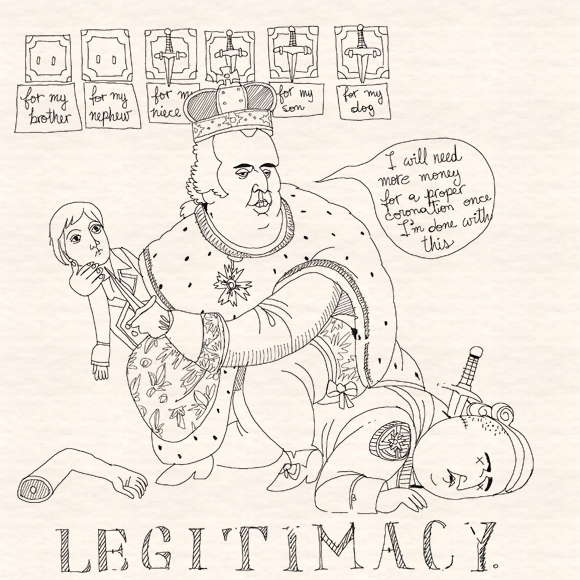 Clearly, recent events have proven that Citizen Capet had already seen that his nephew be murdered by the time this cartoon had been printed. We apologize for implying that this man lacked the expediency or depravity needed to be so swift in the slaughter of whomever stood in the way to his "throne". Onwards, proud citizen! We can only encourage you in your crazed murderous rampage, which we wholeheartedly hope will reach its logical conclusion in you raising the knife against yourself once your kin has been depleted.
|
| # ? Dec 20, 2012 04:32 |
|
 From the journal of Marguerite-Louis-François Duport-Dutertre posted:
|
| # ? Dec 20, 2012 09:55 |
|
 As before, I put my agricultural reform plans to the legislature.
|
| # ? Dec 20, 2012 12:06 |
|
In the interest of concentrating more energy on both Indian Springs and the holiday season, I am retiring from the game. I trust Toussaint can handle things without my help. Farewell!
|
| # ? Dec 21, 2012 02:13 |
|
Citizen de Sade - The Council of Five I would like to take this chance to begin to present the legislative demands of the Sadist club when taking into account the drafting of the new constitution. Let us begin the discussion of the creation of the new primary document which will allow liberty and freedom to ring throughout the ages! 1. Complete freedom of speech, published word and the press. 2. Complete freedom of conscience and action so long as said freedoms do not impose upon the freedoms of others. If an action does not hurt another, the state can no longer push forward and attempt to legislate morality on their behalf. Religious belief specifically would be entirely removed from the sphere of public discourse. 3. The territorial integrity of the French nation; no portion of the French nation may be removed by force or by foreign intrigue from any other. The French nation being defined as our demographers and geographers should determine exactly, as places where Latin-derived languages are spoken primarily, while also taking into account the need for naturally defensive borders 4. Bretons are a traitorous race and should be removed from France entirely, to be renaturalized to their homeland of Britain, at their own expense, or failing the British nation to accept them, to Patagonia, Dahomey or some other place more suitable to their temperament.
|
| # ? Dec 21, 2012 17:00 |
|
QPQ please see your email m8...
|
| # ? Dec 22, 2012 01:52 |
|
I'm just getting back in. Sorry for the delays. Scheduling on my end hasn't worked out quite as I would have liked. It isn't fair to have the turn due tomorrow seeing as I have not had the opportunity to do the statblock, the fixes or the secret turns. I am extending the deadline until December 26th, 2012. This should give everyone enough time to get a few posts in the thread and myself some time to finish the actions. The holidays are also a sign of concern. As always, if people turn in their information sooner we can process the actions ahead of schedule. It doesn't make any sense to turn anything in, however, if I haven't finished everything. EDIT: Turn extended until December 28th, 2012 unless indicated otherwise. It seems that most people aren't going to be around for the holidays and I still haven't updated the turn.
|
| # ? Dec 22, 2012 04:04 |
|
Thanks for extending the turn because I barely have any free time during the holidays.
|
| # ? Dec 22, 2012 19:35 |
|
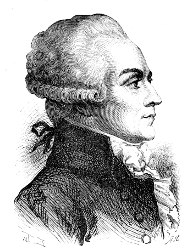 From the desk of Robespierre I have just awoken of a dream of a horrible future, a dream of a France, not 40 years in the future, once more under the thumb of the Bourbons. Brave men, boys in truth, rose up against this tyranny, but the people of Paris slept in their beds! They were on their own, they had no friends, they refused to give up their guns and they died. We cannot, we must not allow such a dream to become reality. In the days to come, I plan to call a massed meeting of those still loyal to the Republic, to be held in #France. There is much to be done, and it will take the combined efforts of us all to do it. Vivé la Republique!
|
| # ? Dec 26, 2012 00:07 |
|
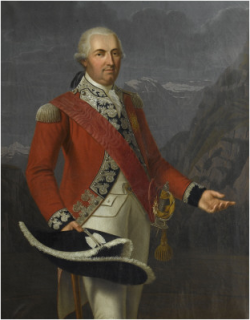 Major Karl Josef von Bachmann of the Kingdom of Heaven 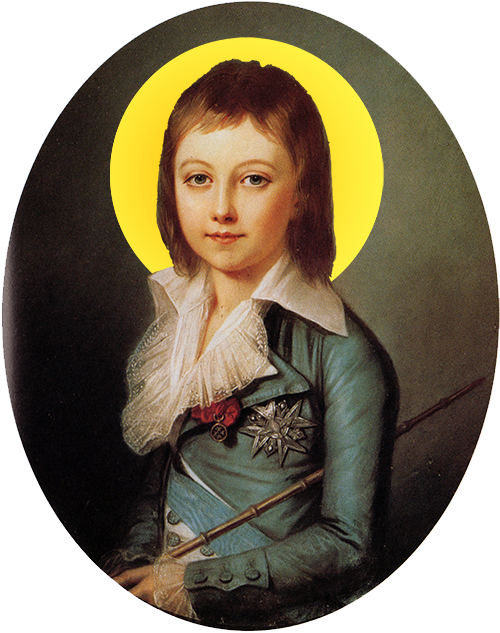 In nomine Louis rex, Persona Christi, Filius Dei et Filius hominis, lumen mundi: CITIZENS of Paris, rejoice! The Lord has returned to us in these times of trouble, to smite the evil doers and reclaim His Heavenly Kingdom! Through careful study of the scriptures, Berbiguier the Baptist, formerly of the University of Paris, whose mortal coil was shed a few months past only to be resurrected through the Divine Grace of our Lord Louis Christ, was able to ascertain that the ancient Bourbon bloodline traces its lineage back to the Virgin Mary, and that through correct application of the Divine Element of Sulphur, the Holy Spirit could be awakened within the newest Son of God, Louis XVII. Henceforwards His Kingdom will be given its proper title: the Kingdom of Heaven. Citizens of Paris, I urge you to repent and be Baptised for the remission of your sins!
|
| # ? Dec 31, 2012 19:31 |
|
 Alexis-Vincent-Charles Berbiguier de Terre-Neuve du Thym of the Chambre Ardente and the Kingdom of Heaven From Moses to Muhammed, from Acropolis to Opus Dei, from the Times of the Gentiles to the Mystery Form of the Kingdom and from the Kingdom of Antichrist to the Millenial Kingdom: Jesus Christ has been reborn and the Crown Restored. Like the rocks of Dudael, the Regnancy of Louie will configure the Stone Kingdom of France into perpetuation, bending and twisting the wand of Rhotomago under the pulpit of the Throne of David. Twenty months I've searched for a way to prevent the assault of the imps, yet every blockade on my chimney has failed. The baptism of the Pantokrator in the Ossuary, however, has finally brought peace to my mind and my room in d'York. When wood and masonry and society fail, we have to turn to other means of warding. The wolchow bones of the sewer-guard and the sacral dead were the conduit and the witness! "Vbi non Gloria, nec Bonitas, nec Bonum est. It is wrowght, (I say) it is wrowght (for thy understanding) by the Seven of the Seven, which were the Sonns of Sempiternitie. whose Names thow hast written, and Recorded to Gods glory." The streets of Paris were nothing but hieroglyphics; scribbles of men who'd map roads through hell with their crackpot theories. "If that which is hidden within the profundities of our Monad be brought to light, or, on the contrary, if those primary parts which are exterior in our Monad are enclosed in the centre, you will see the extent to which the philosophical transformation can be produced." May the Great Seal be kept unperished below the four feet of the prince's Table, marked by the Five Names written in the midst of Sigillum AEmeth. May the state of God's people be ever beheld in the Stone betokened by the Table.
|
| # ? Jan 2, 2013 03:19 |
|
Is this game officially dead? If we want to make a go at breathing life back into it, I'm down.
|
| # ? Jan 3, 2013 00:29 |
|
I think everyone has revealed their secret schemes, so I think it's pretty dead. It was pretty fun!
|
| # ? Jan 3, 2013 00:31 |
|
sniper4625 posted:I think everyone has revealed their secret schemes, so I think it's pretty dead. It was pretty fun! Speak for yourself, I still have a dozen rabbits in all of your hats. Gotta feed the tiger somehow.
|
| # ? Jan 3, 2013 01:42 |
|
I haven't revealed shit. Sign me up if this continues.
|
| # ? Jan 3, 2013 18:07 |
|
"I was a secret agent for a Millenialist cult" reveals Swiss citizen in exclusive interview with Le Libertin
|
| # ? Jan 22, 2013 02:01 |
|
Enjoy posted:"I was a secret agent for a Millenialist cult" reveals Swiss citizen in exclusive interview with Le Libertin Hahah! I was right about your overcomplicated plot! Faking the Demonologist's death was a good move in the Great Game, though. It's interesting to see the different styles of turns, I was a lot briefer, and I don't think I ever cared much about the number of agents I had, while CVortex seemed comfortable enough keeping things abstracted when I inquired him over it. 
|
| # ? Jan 22, 2013 09:46 |
|
Epilogue Spring 1800 After the End of the War of the First Coalition Rule by the Council of Five lasted less than a few months, quickly being eroded by internal bickering and infighting. With the destruction of the National Guard and the ultimate demobilization of the bourgeoisie as a military force, crime in Paris became rampant and assassination attempts the norm. To combat the chaos, Robespierre solidified his control under the guise of restoring order and radicalized - with clergymen, Orleanists, moderates, all who were not considered 'loyal' to the state being purged repeatedly and often (among these victims was President Louis Philippe) - until, weary of this policy and longing for Robespierre's old moderation, a military and bourgeoisie-backed coup brought Général Joseph Marie Servan de Gerbey to power as the first Consul of France, a position he now shares with a pair of previously low-ranking bureaucrats who ultimately defer to him on all matters of importance. The old Council were all found and guillotined without much ceremony, with the exception of the Marquis de Sade, who managed to escape to Brittany with his army, where he would (perhaps somewhat ironically) go into hiding and continues to operate a bandit and marauder operation from to this day. The campaigns in Italy and the Netherlands would be noted for their decisively feudal aftermath. The Italian campaign, led by Général Ney, ultimately brought all of northern Italy into France's sphere - and the wealth of the Italian duchies and merchant republics into Ney's pockets. Though nominally under the control of Paris, Ney managed to ultimately serve as governor of the territory, playing off of several marginalized groups' distrust for one another and using the Pope for his own purposes. To the north, Général André Masséna did something similar, though he had less direct control - the client Batavian Republic was ultimately led by his friend and ally, Herman Willem Daendels. Though the country was ultimately his for as long as he was alive, when Charles Armand Tuffin died of natural causes in early 1798, it left Queen Marie Terese as ultimate authority in the kingdom. All campaigns to put down Brittany failed spectacularly, with British aid solidifying in the face of the sheer weight of the Breton victory. Brittany remains at war with France, its Queen having married (not without objections) her cousin, something that could possibly reunite the two thrones should France's ever be restored. The comte de Provence managed to secure the Maine region for his royalist rebellion in the early part of 1793 and continued to hold it for a little over a year, until de Gerbey finally moved to deal with the threat. The Comte was defeated but escaped with his life, having fled to the United Kingdom where he continues to plot and scheme for France's throne to this day. He has already been blamed by Republican propaganda for thirty separate murders within the country. The Minister of Intelligence was rarely seen, and rarely worked directly with the government, but he was always considered too valuable and too dangerous to risk replacing, and so he maintained his post and does to this day. The exact nature of his intricately woven web of intrigue will probably never be revealed, but many believe he actively played a part in many of the decisive moments in the early years of the Republic's history. Babeuf's failure ultimately condemned his ideology in the years following Louis XVI's execution. His followers who remained in the Roux-led Enrages were either purged or 'converted' to the more mainstream, if still loud, rhetoric of the Jacobins. Many pretenders would claim to be Louis XVII in the aftermath of his supposed assassination by his uncle, the failure to produce an identifiable body a real cause for concern among the republicans. One particular revolt was led by the old commander of the Swiss Guard and his friend, a believed dead demonologist. They managed to create the "Kingdom of Heaven", located exclusively in Paris' inner city, before being shot and killed by the restored National Guard. The incident represents the height of populist, reactionary sentiment within France, though there were many others that followed in their footsteps. Austria and the other coalition powers were forced by Bernadotte to sign a fairly humiliating peace with France after being humiliated on the battlefield, near Verdun, by the Army of the Rhine. The German territories all along the Rhine became French, with several of the German dukes and electors effectively becoming French puppets. Britain maintained its policy of perpetual war with France, funding enemies and rebels where it could, but even as 1800 draws to a close the British Empire stands alone against the French menace. The Ottoman Empire, on the verge of collapse, ultimately loses its Syrian and Egyptian provinces to a resurgent Mameluke class in Egypt. Russia directly annexes Georgia and creates an independent Kingdom of Trebizond along the Pontic coast, led by a member of the Phanar Greek "nobility". America continued to be a chaotic hellhole for many years to come. Not many records exist on what happened to Haiti; it is likely that no one really cared. The Swedish spy ring that operated out of northern France was ultimately discovered and eradicated by a persistent campaign of vengeance initiated by Robespierre and finished by the Consulate. The Swedes were subsequently embarrassed on the world stage, but not enough so to stop their efforts - their agents and vessels were seen smuggling goods into besieged German cities as late as 1798. Marie Gouze, in early 1796, declared an independent, free, and moderate republic located in Marseilles. Though the British were quick to funnel support to her cause, she quickly found herself juggling too many separate and vehemently at odds factions. She was escorted away from France by British ships and granted a modest but comfortable estate and pension in Yorkshire. Louis Philippe II retired to a small home in Belgium, where he amused himself by playing board games with only himself as the opponent. He found the challenge difficult, but satisfying, and yet still spent many hours of the night wondering and worrying about what he might do to himself next. He often quit these games only a day or two after starting them. TOP 3 MARQUIS: 1. The Marquis de Sade 2. The Marquis de Lafayette 3. The Marquis de la Rouërie
|
| # ? Feb 12, 2013 21:40 |
|
Thanks CVortex for running this and giving us the closure of a good, fair ending. Good game everyone!
|
| # ? Feb 13, 2013 01:49 |
|
Yep thanks for the game
|
| # ? Feb 13, 2013 02:42 |
|
No Cadoudal, worst epil-quote:Louis Philippe II retired to a small home in Belgium, where he amused himself by playing board games with only himself as the opponent. He found the challenge difficult, but satisfying, and yet still spent many hours of the night wondering and worrying about what he might do to himself next. He often quit these games only a day or two after starting them.
|
| # ? Feb 13, 2013 03:00 |
|
THE TYGER By William Blake Tyger! Tyger! burning bright In the sewers of the night, What immortal hand or eye Could frame thy fearful symmetry? In what distant deeps or skies Burnt the fire of thine eyes? On what wings dare he aspire? What the hand dare sieze the fire? And what shoulder, & what art. Could twist the sinews of thy heart? And when thy heart began to beat, What dread hand? & what dread feet? What the hammer? what the chain? In what furnace was thy brain? What the anvil? what dread grasp Dare its deadly terrors clasp? When the stars threw down their spears, And watered heaven with their tears, Did he smile his work to see? Did he who made the Lamb make thee? Tyger! Tyger! burning bright In the sewers of the night, What immortal hand or eye Dare frame thy fearful symmetry? 1794
|
| # ? Feb 14, 2013 12:04 |







